Гуманитар-Хукукий Марказ
Реал альтернативалар мавжуд
CON ĐƯỜNG KHÁNG CỰ: HƯỚNG DẪN TỪNG BƯỚC LÊN KẾ HOẠCH CHO CHIẾN DỊCH PHI BẠO LỰC
HƯỚNG DẪN HOẠT ĐỘNG PHI BẠO LỰC
Cẩm nang Phản lực Chiến thuật chống bất công
Quyền lực và sức thuyết phục: Các chiến lược phi bạo lực nhằm gây ảnh hưởng lên lực lượng an ninh quốc gia ở Serbia (2000) và Ukraine (2004)
Thế giới đang chứng minh Martin Luther King đã đúng về phi bạo lực như thế nào
Tam giác vàng trong phản kháng phi bạo lực: Đoàn kết, hoạch định, kỷ luật
Bảng kiểm để kết thúc sự chuyên chế
Activist Guide: The Power of Writing and Storytelling
By: Amber French, Senior Advisor, International Center for Nonviolent Conflict.
Original presentation prepared for a skills-sharing webinar for Beautiful Trouble, June 3, 2025
This short guide addresses all activists interested in using the tool of writing to further democracy, justice and peace. Any kind of organizing experience is valuable, whether it's funded or not, and writing carries enormous value and power for our movements, whether in the form of storytelling or something else.
Writing is our expressed humanity
We are stronger than we think. Authoritarians, corrupt elites and other power abusers dehumanize activists, reducing them to advocates for a cause. Yet grassroots actors are also strong conduits of agency, action, intellect, ideas, imagination, creativity, experience, valuable learnings, emotions...
Writing rehumanizes and vehicles solidarity to grassroots leaders engaged in nonviolent struggle for democracy and peace. Activists and their expressed humanity are an under-recognized force to counter violence and injustice in our societies.
The term "storytelling"
Storytelling can be defined as tracing our histories back to the very seed of our activism, in a way that logically reconstructs our trajectory so a target readership can understand, make sense of, and learn from it.
What are we really talking about when we say storytelling? What kinds of actions and activities? They include:
- investigative journalism and movement-centered news outlets like Waging Nonviolence and ICNC’s blog;
- engaged publishing (like Daraja Press);
- documenting human rights violations at the grassroots level;
- publishing zines, underground publishing
- fiction writing and poetry;
- activist blogging and podcasting;
- a whole array of multimedia formats: plays, movies, art and so on, which require telling a story;
- writing and translating activist resources (like Beautiful Trouble and the ICNC Resource Library);
- collective applied research reports like the Fatshimetrie campaign in the DRC (discover this fascinating campaign here);
- not to mention the more classic stuff like advocacy campaigns on social media.
Activist blogging played a crucial role in many Arab Spring revolutions, drawing considerable international attention to nonviolent revolutions in countries like Tunisia and Egypt (Aya Chebbi wrote a very influential activist blog, for example). Writing itself carries the very seed of resistance in it—but also much more.
Storytelling helps humanize people—activists—who oppressors do everything in their power to dehumanize. Telling their own 'stories' to an international readership helps activists build bridges with the outside and make external support more activist-centered. In my experience, many human rights defenders want to tell their stories… not everyone, but many.
But the narrow frame of storytelling distracts us from an important point. It makes us gloss over the real tool for change, which is the fundamental skill used in storytelling: WRITING, which underpins many multimedia formats beyond just text. You need to engage in writing in order to produce videos, movies, podcasts, art exhibits and so on. Activist writing has been my topic of work for the past 17 years as editor of three online journals—I’ve commissioned 300+ articles from 150+ authors, at least half of whom identify primarily as activists. So in the first part of this guide, I’ll be referring to the writing frame, while the last half will be more specifically focused on storytelling tactics as nonviolent resistance.
The activist writing frame
Engaging in activism often requires dedication, strength, resilience, pain and loss. Writing can sometimes be a long, difficult, time-consuming and painful process for activists. It can bring back trauma. It’s intensely personal. I always tell my authors that writing is a physical extension of their hands, their fingertips; it is part of who they are. The stakes of activist writing are high, both personally for activists and their close circles, and politically for their movements. Importantly, activist writing is very much a function of building self-confidence and developing a sense of entitlement, in a positive sense—the belief or the REALIZATION that we are entitled to a readership, that our experiences and our voices are worth being heard. A sense of entitlement is essential in our activism more broadly: every human is entitled to their human rights, but we don’t all fight for or seize/exercise our rights, because we must first realize we are entitled to them.
When we focus on activist writing, we more fully capture the human agency that activists carry as people who accomplish complex, brave, outstanding, smartly calculated tasks at their own peril.
The writing frame is also important because the nature of activist writing is very different from the nature of non-activist writing. That is to say, activists sometimes relate differently to writing than non-activists do. They have unique needs as writers. Activist writing is done in real time, in real life, with real human consequences and impacts. It has a normative and political nature. Activist writing is both a process and a product. It is simultaneously an expression of, and catalyst of, truth and human agency. More than just performance, activist writing is performative—which means it has the capacity to remember, to legitimize, to remind, to instruct, to spur action. In short, writing makes our activism whole, and storytelling is only one very small piece of this. But again, don’t worry, this guide will also shed some light on storytelling as resistance.
A quick step back
But before we go further into writing or “storytelling” tactics, I want to take a big step back and return to the point of departure of this presentation: That writing is hard when you’re an activist. There are different starting points and categories of activist-writers:
- Category 1: “I don't have anything worthy to write about. I don’t have anything to say.”
- Category 2: “I have something to write but don't know how to write it, or I don’t know what to write, what parts of my experience to bring out.”
The majority of my activist-authors are in this phase, and I commonly have to coach them to identify their successes. Importantly, successes include both outcomes you’d typically view as a success—achieving a movement objective—and what some might consider “failures” and lessons learned.
- Category 3: “I have many things to write. I'm ready to write them or already am. I am looking for specific tools for specific goals, because I want to make a change with my writing.”
Some of my activist-authors fall into this category, and that’s great, but many of them have a very narrow view of the usefulness of writing, seeing it only as resistance itself (social media campaigns, hashtag activism, etc.). I usually have to coach this kind of activist-author to see their own worth, beyond simply as someone with a grievance that they want to talk about and calls for action they want to advertise. Like I said at the beginning, our oppressors want to reduce activists to that, when in reality, activists have so much to offer to the study and practice of strategic nonviolent struggle.
-
Take a moment to think about which phase you are in. Are you in phase 1, “I don’t have anything to write about, I don’t have a story to tell”; phase 2, “sure I guess I’d be down to write something, why not, but I don’t know what to uplift and need some guidance”, or phase 3, “I am ready to put pen to paper, I already do a lot of writing and I want to make more of a difference with it”? You might be between two categories.
Below are some tools and daily practices that can help activist-writers tap into the full spectrum of human agency that writing offers us, beyond simple advocacy.
Put on your journalist hat
Think of a confident activist you know. Ask if you can informally interview them. Ask them PURPOSE questions like:
- What was the seed of your activism?
- When did you first start identifying as an activist? Was it spurred by a personal injustice you suffered, or a collective injustice going on around you that at some point you realized was happening?
- How did you come to realize that the personal suffering was in fact an injustice? Or if observed, how did you find out it was happening, a news report, a conversation with someone, some group interaction?
- How did it make you feel? Why didn’t you ignore it?
- Why do you identify as an activist today?
And so on. If the person doesn’t give you a straight answer that truly speaks to PURPOSE (this is very common), then probe until you get an answer that is clear and explicit enough. Ask your questions a couple of times, in different ways. Look for holes in their logic. What is missing from their answers in order to really understand why they are an activist? Follow up with questions about specific facts: who, what, when, where, why, how.
Take notes and review your notes later to ask yourself what they placed emphasis on. Can you relate? If so, how exactly? Why?
Find a “mirror buddy”, a non-judgmental listener
Ask the shy neighbor who is a decade younger than you, or your mother, or a brother or sister, or the shop cashier you see every week, if they could lend you an ear for 15 minutes (SET A TIMER FOR YOURSELF! Don’t waste their time) so you can tell them more about your work and why you are an activist. Use those informal interview notes you took to guide you.
Then, ask this “mirror buddy” (I’ll explain this title) to summarize what you said, and see if they have any questions for you. What did you need to clarify for them? If you don’t want to or can’t find a non-judgmental listener, record yourself. Video is great, but even just audio is scary enough. 🙂
The underlying concept of this exercise is that editors and readers force you to be face to face with yourself. They put a mirror in front of you, and that's what is scary. Find a friendly person to be your mirror to practice in before putting yourself out there.
Use informal writing methods
If you would typically write in a blank word processing document, go ahead and do so. Then, open a chat conversation or email (ideally on your mobile phone) and explain to a trusted friend or family member what you wrote and why you wrote it. Then… use THAT text as your written product. When you type in a blank document, it’s hard to imagine your readership, so you tend to fall into platitudes and you’re not really saying what you mean. But when you’re addressing an actual physical listener, you make more of an effort to be understood on that person’s level, and this is good for writing. If you don’t have someone in mind, you can also come up with a couple of specific reader profiles to keep in mind while writing, and their biodata—a South African activist for women’s rights who is 50 years old; a young male Colombian researcher who studies peace communities during the civil war, etc.
I always tell my writers: If you want your writing to make a difference, then say what you mean, and mean what you say. This means dropping platitudes, “sacking the teacher in your head” to use the words of a colleague Laurence Cox (you’re not in school anymore, write from your heart!!! Here’s a great example of a blog that was written from the heart, by Mariam Azeem.) Mean what you say means assuming responsibility for your words, owning up to them. They are an extension of you.
Go audio: record your voice into a message to yourself or to someone else on WhatsApp, Signal or Telegram if it’s safe to use technology (don’t share personal data). You can playback your message and type and edit the text it renders. It isn’t cheating, it’s being smart and efficient!!! Many years ago, I worked with a French researcher who was visually impaired. This was before apps for the visually impaired became widely available. He was the author of dozens of books—mostly academic studies but also some non-fiction. He wrote his books entirely through diction, instead of typing, because he had not learned to type efficiently, having lost his sight in the early 1980s. I read much of his work and had always noticed how conversational his tone was. When he revealed his writing method to me, it became clear that the speaking element not only made him more efficient and even prolific, it also improved his written voice.
Brainstorm your successes
...which necessarily include your failures and lessons learned
Brainstorm with your fellow activists if you have achieved something together, whether intentionally or unintentionally. Prompt them with ideas: Did we successfully train people? Did we pull off a nonviolent campaign that had some sort of impact? Ask trusted family or friends: Have I told you something that made you feel proud of me, with regard to my activism? What was it, why were you proud? What difference did it make in your opinion?
Learn about all the ways that writing is power
Below are the 38 ways writing is power, which will hopefully spark some ideas on how you can leverage your writing and storytelling to shift power dynamics in small ways and/or flex your agency in bigger ways.
A little background about this list, because I didn’t make them up, I just observed and compiled them. So let’s give credit where credit is due. Activists are already doing them; they just perhaps don’t recognize the value of them (they have not developed the confidence or positive sense of entitlement required to recognize the value of them).
I’ll also set the scene, since this is also a guide about storytelling :) I attended a gathering of east African activists last winter, who were all leveraging writing in some creative or expository way: as podcasters, TV and film producers, independent journalists, filmmakers, poets, singers, social media influencers, as well as classic "writers." They wrote scripts. They created videos and wrote posts for their Instagram followers. They read to us their poems from published anthologies. They wrote song lyrics. They managed parody news sites and wrote political satire. They managed local NGO communication strategies. Yet what they all had in common was that their writing was normative: it was to nonviolently struggle for human rights and social justice (and this takes many forms beyond simple advocacy—which is a central argument of my presentation).
As I listened to the conversations over the course of the four-day gathering, including during a session I co-hosted with Rosie Motene to this effect, I scribbled down mad-scientist looking notes to capture all the ways writing is power. So without further ado, here they are.
Writing is…
((check out the Beautiful Trouble tools I've embedded into this list - they guide activists on how to operationalize writing as nonviolent resistance!)
- ...a vehicle for advocacy, raising awareness, movement communications < Beautiful Trouble tool to check out
- ...a vehicle for sense-making, personal reflection as an activist
- ...a vehicle for sense-making, collective reflection as a movement
- ...a source of revenue for activists
- ...a source of revenue for movements
- ...a way to officialize information and events (related to truth-telling) < Beautiful Trouble tool to check out
- ...a way for inter-movement and intra-movement activist learning, education, training and edification to happen
- ...documentary resistance, a way to set the record straight, truth-telling < Beautiful Trouble tool to check out
- ...a way to share information (journalism)
- ...a way to let information get out safely (smoke-writing)
- ...a way to take a step back and see your activism more clearly, to find your way back to your unique, original “why”, to know ourselves better, to know the truth about ourselves in a world where lies our told about us
- ...used to influence or control the narrative about your struggle, to not leave silence about ourselves for others to fill (it’s less about what you say, it’s more about who you are)
- ...a way to generate external support (funding for trainings, international solidarity, unarmed accompaniment for nonviolent movements in conflict zones, etc.)
- ...a way to build trust with external supporters
- ...a way to humanize ourselves, in the face of vociferous dehumanization campaigns led by our oppressors
- ...a way to own up to our activism
- ...a way to resist suffering and let joy reign (humor, satire, parody…)
- ...a way to dramatize injustice (humor, satire, parody…) < Beautiful Trouble tool to check out
- ...a way to keep searching for answers
- ...a way to find connections and common ground with others, to build community
- ...a way to build self-confidence and find your voice
- ...a teambuilding exercise for movements
- ...a way to learn about how others see you (when you write for international outlets and work with editors)
- ...a way to give a voice to the less vocal participants of a movement
- ...a relatively low-risk, low-threshold nonviolent action for those activists who do not wish to be on the frontlines (scrupulous digital security measures must be taken if that writing is to be released publicly, but there are other writing formats and methods that do not require this, like gathering written activist testimonies)
- ...something that can be leveraged to improve gender and minority inclusion in a movement
- ...leaving a trace and thus is noncooperation, because our oppressors want to erase our traces
- ...a way to contribute to the democratization of knowledge
- ...a human right
- ...our duty as activists. By sharing our voices, our insights, our experiences, our successes and failures, we are accountable to all other activists in the world fighting for human rights, freedom, peace and social justice
- ...a way to appropriate power (access to editorial production and publishing)
- ...something that less-trusted movement participants can be entrusted with (you don’t have to do anything with what they write, and you didn’t raise suspicion by trying to exclude them from your movement which could cause panic and make a movement implode)
- ...a way to quickly seize trigger events and shed light on injustice that is happening right now < Beautiful Trouble tool to check out
- ...a tool or strategy, not an action; it promises more when approached with the long term in mind (proactively like building an archive of written activist testimonies, or documenting war crimes) and not as delivering some quick solution (reactively, like launching a hashtag campaign on Twitter)
- ...does not happen in a vacuum. It is normative, it is politically charged, it gives rise to action.
- ...not just performance, it is also performative. It connects words with action. It consummates our activism or makes our activism whole. And it makes us whole as activists.
- ...a way to embrace our humanity
- ...a way to demystify.
What I really like about this list is that it is about how writing IS power, not how writing CAN be power. It's already happening; activists are already leveraging writing in these ways—they are already deriving power from this tool.
Take some time to digest this list. Read a few of our REACT activist-authored posts. Come back to the list in a few days. Print it out and show it to your fellow activists. Lead a brainstorming session and solicit some reactions: In our work, have we observed activists using writing for these purposes? If not, why not? What are we missing, what can we do better?
The greater human project
I am a firm believer that as difficult, time-consuming and painful as writing can be for some activists, it is really worth it, at the very least on a personal level, for its reflective value. Writing with or without a readership is a transformative experience and a way we can each individually play a role in the greater human project of defending rights, justice and freedom.
Further reading
- https://www.nonviolent-conflict.org/blog_post/38-ways-writing-is-power-for-our-nonviolent-struggles/
- https://www.nonviolent-conflict.org/blog_post/power-activist-led-educational-engaged-storytelling/
- https://www.nonviolent-conflict.org/blog_post/writing-about-activism-tactic-lesson-refuge-right/
- https://www.nonviolent-conflict.org/blog_post/dangerous-words-the-cost-of-writing-as-resistance/
New ICNC Partnership with the Institut pour la Paix (France)
ICNC is pleased to announce its new partnership with the Paris-based Institut Pour la Paix (IPP)!
IPP's mission is to promote peace studies in the French-speaking, European and international space. Its leadership, staff and members make up a multidisciplinary team drawing from academic, professional and civil society circles. IPP supports working groups on conceptions of peace; gender and peace; the environment and peace; and civil resistance, nonviolence and the culture of peace. Its activities are primarily based in France but its constituencies are based in many regions of the world.
[caption id="attachment_49007" align="alignright" width="300"]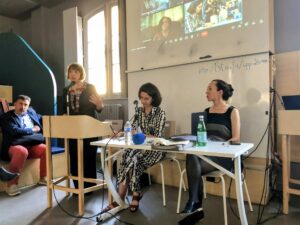 ICNC-IPP study day in Paris in 2023. The Working Group identified a need to produce educational materials on civil resistance in French. Credit: Amber French.[/caption]
[caption id="attachment_49005" align="alignleft" width="300"]
ICNC-IPP study day in Paris in 2023. The Working Group identified a need to produce educational materials on civil resistance in French. Credit: Amber French.[/caption]
[caption id="attachment_49005" align="alignleft" width="300"]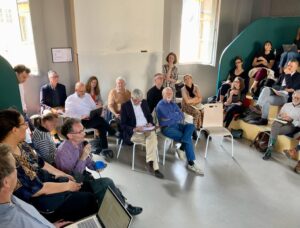 Study day in Paris, 2023. Credit: Amber French.[/caption]
ICNC is a leading organization advancing the study and practice of nonviolent civil resistance to achieve rights, freedom, and justice around the world. ICNC’s distinguished education and training programs have attracted thousands of participants from more than 100 countries. Its research and publications make cutting-edge knowledge accessible to diverse practitioners and scholars. ICNC’s website, with the accompanying blog Minds of the Movement, is a global clearinghouse of information, with resources in over 70 different languages and dialects.
Building on this foundation, ICNC supports the development of new, localized educational initiatives in French, focusing on civil resistance and related themes. Its activities have centered primarily on movements and communities in Francophone Africa, allowing ICNC to build networks of trust in several African countries with activists, movements and other civil society actors. From 2021 forward, its activities in continental France have been spearheaded by Amber French, Senior Advisor and Blog Managing Editor, who is based in Paris.
Study day in Paris, 2023. Credit: Amber French.[/caption]
ICNC is a leading organization advancing the study and practice of nonviolent civil resistance to achieve rights, freedom, and justice around the world. ICNC’s distinguished education and training programs have attracted thousands of participants from more than 100 countries. Its research and publications make cutting-edge knowledge accessible to diverse practitioners and scholars. ICNC’s website, with the accompanying blog Minds of the Movement, is a global clearinghouse of information, with resources in over 70 different languages and dialects.
Building on this foundation, ICNC supports the development of new, localized educational initiatives in French, focusing on civil resistance and related themes. Its activities have centered primarily on movements and communities in Francophone Africa, allowing ICNC to build networks of trust in several African countries with activists, movements and other civil society actors. From 2021 forward, its activities in continental France have been spearheaded by Amber French, Senior Advisor and Blog Managing Editor, who is based in Paris.
Aims of the partnership
[caption id="attachment_49257" align="alignleft" width="300"]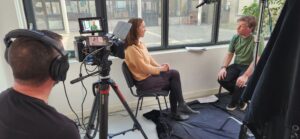 Shooting of online course videos in Paris, 2024.[/caption]
The partners aim to find synergies between their respective educational and civic initiatives in France, Europe and the Francophone world. Since the beginning of their collaboration, informally in 2021 when Amber French gave impetus for and co-founded the IPP working group entitled "Civil Resistance, Nonviolence and the Culture of Peace", the partners have reinforced Francophone networks in civil resistance and peace worldwide, namely through the co-production of the first online course on nonviolent struggle in French. Additional partners for the online course project include Non-violence XXI and LUCHA Lutte pour le changement, a Congolese nonviolent movement for peace and democracy.
The partners are committed to creating spaces for dialogue and enquiries to engage people through programs, conversations, audiovisual means and educational resources. Further, they are committed to promoting and supporting research, action-research and knowledge sharing to promote a better understanding of nonviolent civil resistance and peace studies in Francophone spaces.
The partnership is centered on the three themes:
Shooting of online course videos in Paris, 2024.[/caption]
The partners aim to find synergies between their respective educational and civic initiatives in France, Europe and the Francophone world. Since the beginning of their collaboration, informally in 2021 when Amber French gave impetus for and co-founded the IPP working group entitled "Civil Resistance, Nonviolence and the Culture of Peace", the partners have reinforced Francophone networks in civil resistance and peace worldwide, namely through the co-production of the first online course on nonviolent struggle in French. Additional partners for the online course project include Non-violence XXI and LUCHA Lutte pour le changement, a Congolese nonviolent movement for peace and democracy.
The partners are committed to creating spaces for dialogue and enquiries to engage people through programs, conversations, audiovisual means and educational resources. Further, they are committed to promoting and supporting research, action-research and knowledge sharing to promote a better understanding of nonviolent civil resistance and peace studies in Francophone spaces.
The partnership is centered on the three themes:
- How civil resistance studies and peace studies intersect and are complementary, as well as how they differ.
- How to build and reinforce Francophone academic, policy and activist communities around civil resistance and peace.
- How to raise the public profile of nonviolent movements for rights, justice, freedom and peace in Francophone media, policy circles and universities.
History of the partnership
[caption id="attachment_49255" align="alignright" width="300"]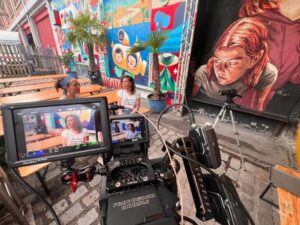 Shooting of online course videos in Paris, 2024.[/caption]
By early 2022, the working group on Civil Resistance, Nonviolence and the Culture of Peace had been established and announced on IPP’s website, with Amber French, Cecile Dubernet, Raphael Porteilla and later Alain Refalo as co-facilitators. The group was officially launched in May 2023 with the organization of a study day, co-sponsored by IPP and ICNC, at the Institut Catholique de Paris. A few dozen collaborators from France, Europe and Africa converged online and in-person that day to present their recent work on the working group topics. ICNC and IPP collaborators attended.
[caption id="attachment_49256" align="alignleft" width="300"]
Shooting of online course videos in Paris, 2024.[/caption]
By early 2022, the working group on Civil Resistance, Nonviolence and the Culture of Peace had been established and announced on IPP’s website, with Amber French, Cecile Dubernet, Raphael Porteilla and later Alain Refalo as co-facilitators. The group was officially launched in May 2023 with the organization of a study day, co-sponsored by IPP and ICNC, at the Institut Catholique de Paris. A few dozen collaborators from France, Europe and Africa converged online and in-person that day to present their recent work on the working group topics. ICNC and IPP collaborators attended.
[caption id="attachment_49256" align="alignleft" width="300"]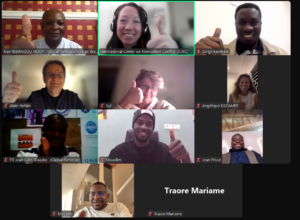 Conclusion of first online course cohort, 2024.[/caption]
Also in 2023, group co-facilitators collaborated to produce an internal concept note in French outlining the convergences and divergences between conceptions of civil resistance, nonviolence and the culture of peace. This note was made public on IPP’s website in early
2025.
Further, in 2024, the working group organized a working seminar at the Institut Catholique de Paris, again co-sponsored and attended by IPP and ICNC. This time, among ICNC staff in attendance was Executive Director Ivan Marovic, symbolizing the growing importance placed on ICNC collaborative activities with IPP. The working seminar gathered some 20-25 stakeholders in the Paris area to contribute to the development of a multi-partner online course in French on nonviolent struggle. The online course, hosted by ICNC’s online learning platform, was launched in 2024 and as of early 2025 had cycled through two cohorts of dozens of French-speaking activists, researchers and members of civil society from around the world.
Notable actors in the construction of the ICNC-IPP collaboration from 2021 forward are: Amber French (ICNC), Cecile Dubernet (Institut Catholique de Paris, working group co-facilitator), Raphael Porteilla (Universite de Bourgogne, working group co-facilitator), Alain Refalo (Centre de Ressources sur la Non-violence, working group co-facilitator), Laura Lema Silva (former IPP), Ivan Marovic (ICNC), Hardy Merriman (ICNC), Thomas Hippler (IPP), Philippe Bonditti (IPP) and Mickael Lopes (IPP).
Conclusion of first online course cohort, 2024.[/caption]
Also in 2023, group co-facilitators collaborated to produce an internal concept note in French outlining the convergences and divergences between conceptions of civil resistance, nonviolence and the culture of peace. This note was made public on IPP’s website in early
2025.
Further, in 2024, the working group organized a working seminar at the Institut Catholique de Paris, again co-sponsored and attended by IPP and ICNC. This time, among ICNC staff in attendance was Executive Director Ivan Marovic, symbolizing the growing importance placed on ICNC collaborative activities with IPP. The working seminar gathered some 20-25 stakeholders in the Paris area to contribute to the development of a multi-partner online course in French on nonviolent struggle. The online course, hosted by ICNC’s online learning platform, was launched in 2024 and as of early 2025 had cycled through two cohorts of dozens of French-speaking activists, researchers and members of civil society from around the world.
Notable actors in the construction of the ICNC-IPP collaboration from 2021 forward are: Amber French (ICNC), Cecile Dubernet (Institut Catholique de Paris, working group co-facilitator), Raphael Porteilla (Universite de Bourgogne, working group co-facilitator), Alain Refalo (Centre de Ressources sur la Non-violence, working group co-facilitator), Laura Lema Silva (former IPP), Ivan Marovic (ICNC), Hardy Merriman (ICNC), Thomas Hippler (IPP), Philippe Bonditti (IPP) and Mickael Lopes (IPP).
REACT Activist Writing: “Open Mic” + Story Pitches / Scène ouverte écriture militante, propositions d’articles
This webinar featured eight of our outstanding REACT Activist Bloggers from around the world
((embed video))
Webinar details:
 The 2025 round-up of activist writing on ICNC’s blog, Minds of the Movement is underway! Amos Oluwatoye, Merab Ingabire, Rosie Motene and many others have been reflecting on their activism and the unique ways that writing is power for them, both individually and in their communities.
In this REACT open mic, we heard directly from Amos, Merab, Rosie and five other activist-creatives around the world who have recently pitched stories for the Minds of the Movement blog. After our planned speakers shared their pitches, we opened the mic up to hear the audience's comments, reactions & story ideas to relate their activism.
This webinar is a great opportunity to take the pulse of activism happening in 2025, worldwide. Our listeners heard directly from our growing network of activist-creatives: their engagements and the nonviolent struggle(s) they are part of; how activism intersects with both creative and expository writing; how activists relate to writing; and the multitude of ways they use writing & creativity in their struggles for human rights, social justice and peace. The webinar also featured a poetry reading by Kenyan activist Sungu Oyoo.
This webinar took place in English and French with interpretation.
It took place on March 13, 2025 and was moderated by Amber French, REACT Project Co-Lead and Editor of the Minds of the Movement (ICNC).
The 2025 round-up of activist writing on ICNC’s blog, Minds of the Movement is underway! Amos Oluwatoye, Merab Ingabire, Rosie Motene and many others have been reflecting on their activism and the unique ways that writing is power for them, both individually and in their communities.
In this REACT open mic, we heard directly from Amos, Merab, Rosie and five other activist-creatives around the world who have recently pitched stories for the Minds of the Movement blog. After our planned speakers shared their pitches, we opened the mic up to hear the audience's comments, reactions & story ideas to relate their activism.
This webinar is a great opportunity to take the pulse of activism happening in 2025, worldwide. Our listeners heard directly from our growing network of activist-creatives: their engagements and the nonviolent struggle(s) they are part of; how activism intersects with both creative and expository writing; how activists relate to writing; and the multitude of ways they use writing & creativity in their struggles for human rights, social justice and peace. The webinar also featured a poetry reading by Kenyan activist Sungu Oyoo.
This webinar took place in English and French with interpretation.
It took place on March 13, 2025 and was moderated by Amber French, REACT Project Co-Lead and Editor of the Minds of the Movement (ICNC).
More About the Presenters:
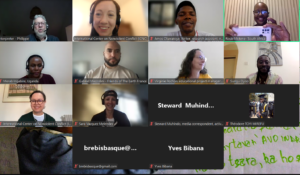 Steward Muhindo Kalyamughuma, Activist, REACT Guest Editor, DR Congo
Steward Muhindo Kalyamughuma, Activist, REACT Guest Editor, DR Congo
Virginie Pochon, Educational project manager, environmental activist, French living in Haiti
Amos Oluwatoye, Writer, research assistant, nonviolent action trainer, Nigeria
Rosie Motene, Podcaster, TV producer, actress, writer, coach, South Africa
Merab Ingabire, Communications specialist, photojournalist, activist, Uganda
Sara Vazquez Melendez, Anthropologist, farmer, activist and civil resistance educator, Puerto Rico
Gabriel Mazzolini, Movement building specialist, content creator, France
Sungu Oyoo, Activist, nonviolent resistance trainer, writer/poet, campaign strategist, Kenya
How Polish Judges Fought to Keep Their Independence
This webinar featured Marcin Mrowicki alongside panelists Elizabeth A. Wilson and Doug Coltart
Webinar details:
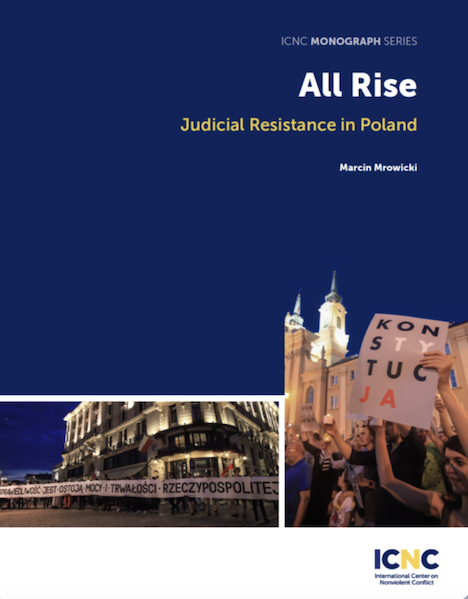 This webinar explored the ways in which the legal community can draw practical lessons from the Polish judiciary's resistance to authoritarian pressures under the ruling Law and Justice Party (PiS). It delved into the tactics judges employed to safeguard their independence, from subtle acts of defiance within courtrooms to collective public resistance. By analyzing these actions, the webinar uncovered the role of judges as defenders of democratic principles, even under significant state pressure. Attendees considered how lawyers, like judges, can maintain ethical standards while navigating political conflicts that threaten judicial autonomy. Furthermore, the webinar emphasized the importance of understanding resistance strategies for legal professionals facing similar challenges globally. Ultimately, it shed light on the judiciary's critical role in upholding the rule of law in the face of authoritarian encroachment.
This webinar explored the ways in which the legal community can draw practical lessons from the Polish judiciary's resistance to authoritarian pressures under the ruling Law and Justice Party (PiS). It delved into the tactics judges employed to safeguard their independence, from subtle acts of defiance within courtrooms to collective public resistance. By analyzing these actions, the webinar uncovered the role of judges as defenders of democratic principles, even under significant state pressure. Attendees considered how lawyers, like judges, can maintain ethical standards while navigating political conflicts that threaten judicial autonomy. Furthermore, the webinar emphasized the importance of understanding resistance strategies for legal professionals facing similar challenges globally. Ultimately, it shed light on the judiciary's critical role in upholding the rule of law in the face of authoritarian encroachment.
Furthermore, key speaker Marcin Mrowicki discussed his monograph, All Rise: Judicial Resistance in Poland, which investigates the strategic and organized resistance of Polish judges against the authoritarian encroachments on judicial independence by the ruling Law and Justice (PiS) party from 2015 to 2023. The resistance movement led to significant national and international outcomes, including presidential vetoes of controversial judicial reform bills, the reinstatement of judges, and actions by the Court of Justice of the European Union (CJEU) and the European Court of Human Rights (ECHR) against Poland.
This webinar took place on December 11, 2024.
More About the Presenter and Author:
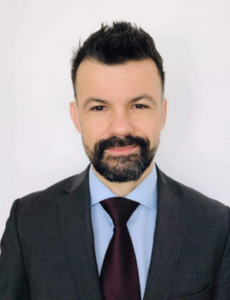 Marcin Mrowicki, PhD, is Assistant Professor of EU Law and Human Rights at the University of Warsaw (Centre for Europe). He is an author of many academic and popular science publications. He worked as a lawyer at the European Court for Human Rights in Strasbourg (2012-2016), and at the Polish Commissioner for Human Rights’ Office in Poland (2016-2024). Since February 2024, he is also a Secretary of the Inter-ministerial Committee for Restoring Rule of Law and Constitutional Order and a Deputy Head of the Criminal Law Department of the Ministry of Justice in Poland.
Marcin Mrowicki, PhD, is Assistant Professor of EU Law and Human Rights at the University of Warsaw (Centre for Europe). He is an author of many academic and popular science publications. He worked as a lawyer at the European Court for Human Rights in Strasbourg (2012-2016), and at the Polish Commissioner for Human Rights’ Office in Poland (2016-2024). Since February 2024, he is also a Secretary of the Inter-ministerial Committee for Restoring Rule of Law and Constitutional Order and a Deputy Head of the Criminal Law Department of the Ministry of Justice in Poland.
About the Respondents:
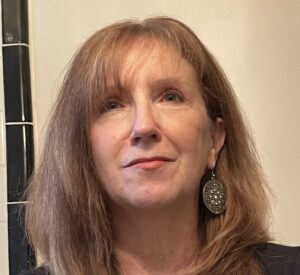 Elizabeth A. Wilson has a JD from Harvard Law School and a PhD from the University of Pennsylvania. She has taught public international law and international human rights at Seton Hall’s School of Diplomacy, Rutgers Law School, and Columbia University’s Institute for Human Rights, and has been a visiting senior fellow at the Max Planck Institute for Comparative Public Law and International Law in Heidelberg, Germany. She is the author of People Power and International Human Rights: Creating a Legal Framework, an ICNC monograph. She is now an attorney with Gilbert Employment Law, a civil rights law firm.
Elizabeth A. Wilson has a JD from Harvard Law School and a PhD from the University of Pennsylvania. She has taught public international law and international human rights at Seton Hall’s School of Diplomacy, Rutgers Law School, and Columbia University’s Institute for Human Rights, and has been a visiting senior fellow at the Max Planck Institute for Comparative Public Law and International Law in Heidelberg, Germany. She is the author of People Power and International Human Rights: Creating a Legal Framework, an ICNC monograph. She is now an attorney with Gilbert Employment Law, a civil rights law firm.
 Doug Coltart is a Zimbabwean lawyer, human rights activist, social movement coach, and writer. His legal practice focuses on providing representation to journalists, activists, trade unionists, etc who are prosecuted for exercising their rights. Mostly, he just loves to dance!
Doug Coltart is a Zimbabwean lawyer, human rights activist, social movement coach, and writer. His legal practice focuses on providing representation to journalists, activists, trade unionists, etc who are prosecuted for exercising their rights. Mostly, he just loves to dance!
Voices of Resilience: Women Defending Human Rights in Southeast Asia
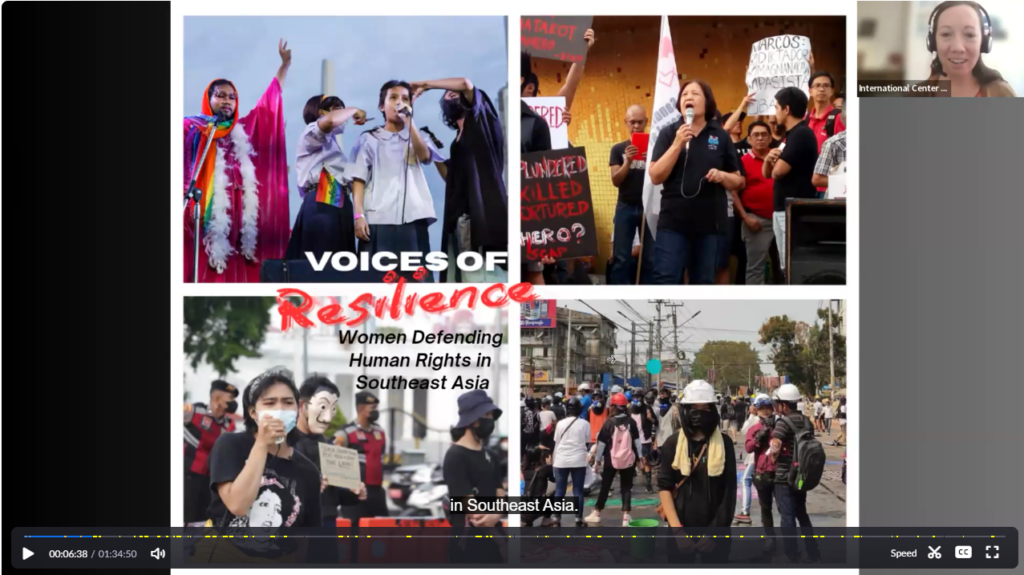

Webinar Description:
This webinar featured five women human rights defenders (WHRDs) participating in nonviolent struggles for rights, democracy and peace. Based in Myanmar, Indonesia, the Philippines and Thailand, webinar speakers Evy, Nilda, Ei Mon, Yin Lae and Memee are all contributors to the REACT Activist Writing blog series, "Voices of Resilience: Women Defending Human Rights in Southeast Asia", powered by ActionAid Denmark.
In this webinar, we heard how WHRDs are organizing in environments that are extremely hostile towards human rights activism. Speakers highlighted how they are navigating unique challenges they face as women, both young and elderly. Beyond movement organizing, these women HRDs engage in writing, knowledge sharing and solidarity building, namely intergenerational solidarity.
Presenters' ideas, experiences, stories and analysis were particularly relevant to activists facing similar challenges in any region of the world, as well as policymakers and civil society actors working with movements.
This webinar took place on October 16, 2024. Check out the full REACT Research-in-Action series powered by ActionAid Denmark.
About the Speakers:
 Nitchakarn Rakwongrit (Memee) Nitchakarn Rakwongrit (Memee) is a young feminist activist based in Bangkok, Thailand. She became involved in the Thai pro-democracy protests in 2020 and has been actively engaged in activism ever since. Despite her young age, she has faced political prosecution in at least seven cases, with five occurring when she was still a minor. Currently, Memee is actively involved with the Milk Tea Alliance Thailand and strives to incorporate feminism and collective culture into social movements.
Read her REACT blog post:
Nitchakarn Rakwongrit (Memee) Nitchakarn Rakwongrit (Memee) is a young feminist activist based in Bangkok, Thailand. She became involved in the Thai pro-democracy protests in 2020 and has been actively engaged in activism ever since. Despite her young age, she has faced political prosecution in at least seven cases, with five occurring when she was still a minor. Currently, Memee is actively involved with the Milk Tea Alliance Thailand and strives to incorporate feminism and collective culture into social movements.
Read her REACT blog post:
 Evy Zulyani is a history graduate working in the fields of communication and knowledge management. After graduating, she focused on labor, human rights and gender issues. Her research was published in the 2020 edition of the Indonesian Feminist Journal, focusing on women migrant workers. She is also an active member of the Asia solidarity movement, known as the Milk Tea Alliance. Currently, Evy serves as an education and research coordinator at the Media and Creative Industry Workers Union for Democracy (SINDIKASI). In her free time, she enjoys walking to explore the city and making zines.
Read her REACT blog post:
Evy Zulyani is a history graduate working in the fields of communication and knowledge management. After graduating, she focused on labor, human rights and gender issues. Her research was published in the 2020 edition of the Indonesian Feminist Journal, focusing on women migrant workers. She is also an active member of the Asia solidarity movement, known as the Milk Tea Alliance. Currently, Evy serves as an education and research coordinator at the Media and Creative Industry Workers Union for Democracy (SINDIKASI). In her free time, she enjoys walking to explore the city and making zines.
Read her REACT blog post:
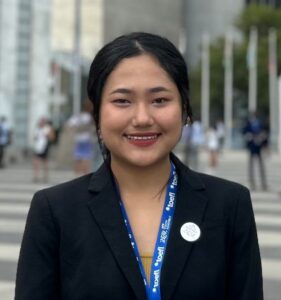 Ei Mon Soe is Rakhine, one of the ethnic minority groups in Myanmar. She is currently based in Chiang Mai, Thailand. She decided to drop out of university as a form of civil disobedience after the 2021 coup, with a strong will to pursue her education in a democratic country and not under military rule. She was actively involved in anti-coup, pro-democracy protest against the military junta in 2021. She is currently a data science junior student at Parami University (Myanmar) while working as a teaching assistant at Spring University Myanmar (SUM), which was established after the coup to support interim education youths.
Read her REACT blog post:
Ei Mon Soe is Rakhine, one of the ethnic minority groups in Myanmar. She is currently based in Chiang Mai, Thailand. She decided to drop out of university as a form of civil disobedience after the 2021 coup, with a strong will to pursue her education in a democratic country and not under military rule. She was actively involved in anti-coup, pro-democracy protest against the military junta in 2021. She is currently a data science junior student at Parami University (Myanmar) while working as a teaching assistant at Spring University Myanmar (SUM), which was established after the coup to support interim education youths.
Read her REACT blog post:
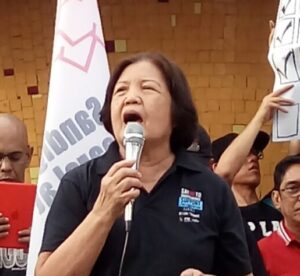 As a human rights defender for over fifty years, Nilda Sevilla steadfastly worked for institutional reforms and societal justice in the Philippines. She taught political science in college before, during and after the Ferdinand Marcos dictatorship. At the height of the resistance to the repressive regime, she helped organize a faculty union, serving as its president and achieving legal victory for her illegally dismissed colleagues. As Co-chairperson of the Families of Victims of Involuntary Disappearance (FIND) and as legislative staff chief in the House of Representatives, she actively participated in lawmaking that led to landmark human rights laws notably against enforced disappearance and torture, on death penalty prohibition, and giving martial law victims recognition and reparation, among others.
Read her REACT blog post:
As a human rights defender for over fifty years, Nilda Sevilla steadfastly worked for institutional reforms and societal justice in the Philippines. She taught political science in college before, during and after the Ferdinand Marcos dictatorship. At the height of the resistance to the repressive regime, she helped organize a faculty union, serving as its president and achieving legal victory for her illegally dismissed colleagues. As Co-chairperson of the Families of Victims of Involuntary Disappearance (FIND) and as legislative staff chief in the House of Representatives, she actively participated in lawmaking that led to landmark human rights laws notably against enforced disappearance and torture, on death penalty prohibition, and giving martial law victims recognition and reparation, among others.
Read her REACT blog post:
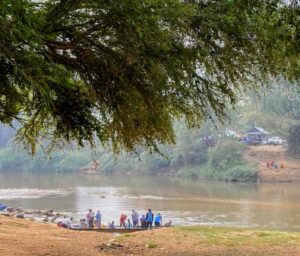 As a young woman from one of the ethnic minorities in Myanmar, Yin Lae Aung started her activism during at university and worked for academic freedom and environmental issues. After the 2021 coup in Myanmar, she mobilized and organized youth protests against the military dictatorship, including boycotting education under junta control and joining art strikes. When the military government threatened and attempted to arrest her because of her activism, she was forced to flee to the border area in Thailand. She initiated Rangoon Voice-Cast (RVC), a platform for marginalized voices, youth and the working-class community.
Read her REACT blog post:
As a young woman from one of the ethnic minorities in Myanmar, Yin Lae Aung started her activism during at university and worked for academic freedom and environmental issues. After the 2021 coup in Myanmar, she mobilized and organized youth protests against the military dictatorship, including boycotting education under junta control and joining art strikes. When the military government threatened and attempted to arrest her because of her activism, she was forced to flee to the border area in Thailand. She initiated Rangoon Voice-Cast (RVC), a platform for marginalized voices, youth and the working-class community.
Read her REACT blog post:
About the moderator:
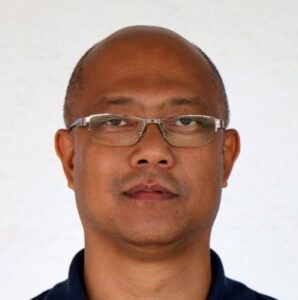 Maneesh Pradhan is guest editor of the REACT series "Voices of Resilience: Struggles and Triumphs of Women Human Rights Defenders in Southeast Asia". He is a passionate advocate for social and ecological justice, with over 20 years of experience in international development and human rights. A firm believer in the power of collective actions, he has an extensive background in collaborating with human rights defenders and building alliances with social movements across Asia. His track record includes strategic planning, rights-based advocacy, campaigning and organizational development. As a pragmatic critical thinker who champions the praxis approach, Maneesh currently serves as the Asia Regional Coordination Lead at ActionAid International, based in Nepal. In his free time, he enjoys music, poetry, and sharing reflections on life through his blog.
Maneesh Pradhan is guest editor of the REACT series "Voices of Resilience: Struggles and Triumphs of Women Human Rights Defenders in Southeast Asia". He is a passionate advocate for social and ecological justice, with over 20 years of experience in international development and human rights. A firm believer in the power of collective actions, he has an extensive background in collaborating with human rights defenders and building alliances with social movements across Asia. His track record includes strategic planning, rights-based advocacy, campaigning and organizational development. As a pragmatic critical thinker who champions the praxis approach, Maneesh currently serves as the Asia Regional Coordination Lead at ActionAid International, based in Nepal. In his free time, he enjoys music, poetry, and sharing reflections on life through his blog.
Activism in Exile – REACT webinar in Arabic w/English interpretation
ENGLISH BELOW
[embed]https://youtu.be/uy7v0GLi_uA[/embed]

وصف الويبينار:
الناشطون في المنفى: التحديات، الفرص، التجارب المعاشة ندوة عبر الإنترنت مقدمة من المركز الدولي للنزاع غير العنيف ومؤسسة HuMENA لحقوق الإنسان والمشاركة المدنية، بدعم من ActionAid الدنمارك. الجمعة 21 يونيو 2024 من الساعة 17:30 إلى 19:00 بتوقيت وسط أوروبا (اعرف منطقتك الزمنية). سجل هنا تقدم هذه الندوة عبر الإنترنت موضوع النشاط السياسي في المنفى شهادات وتجارب معاشة لأشخاص أجبروا أو اختاروا مغادرة بلدانهم، والتحديات التي يواجهونها في التكيف مع المجتمعات الجديدة. سيتناول المتحدثون التقاطع المعقد بين النشاط والهوية والتجارب العميقة للمنفى - رحلة مليئة بالبحث المستمر عن المعنى والانتماء.سيتناول المتحدثون التقاطع المعقد بين النشاط السياسي والهوية والتجارب العميقة للمنفى - رحلة مليئة بالبحث المستمر عن المعنى والانتماء. تطلق الندوة سلسلة مدونة REACT (https://everytimezone.com/s/843bb73c : البحث الإجرائي) بعنوان "الناشطون في المنفى: التحديات، الفرص، التجارب المعاشة"، والتي تنقل العديد من الروايات الشخصية التي ستظهر خلال مايو ويونيو 2024. قم بزيارة موقع mindsofthemovement.org بشكل منتظم لقراءة المقالات فور نشرها! ----
Webinar Description:
A REACT webinar hosted by the International Center on Nonviolent Conflict and HuMENA for Human Rights and Civic Engagement, powered by ActionAid Denmark. This webinar on activism in exile presents testimonies and lived experiences of people who were forced or chose to leave their countries, and the challenges they face in adapting to new societies. Speakers will delve into the complex intersection of activism, identity, and the profound experiences of exile—a journey marked by an ongoing search for meaning and belonging. The webinar launches the REACT (Research-in-Action) blog series, entitled “Activism in Exile: Challenges, Opportunities, Lived Experiences”, which channels numerous personal narratives to appear throughout May and June 2024. Check back regularly on mindsofthemovement.org to read the articles as they are pushed live!
About the Speakers:
 Sarah Sheik Ali is a migrant woman of color, a feminist, and a human rights defender from Lebanon, fighting double battles against patriarchy and dictatorships and advocating for the engagement of activists in exile in change-making back home. She is a Ph.D. candidate in political science with a concentration on diaspora and gender at the Universite Libre de Bruxelles. She is the co-founder and executive director of HuMENA for Human Rights and Civic Engagement. She is also a researcher and consultant with significant experience, especially in activism in exile, gender, civic space, democratization, human rights, and women's rights. She is a former researcher at Columbia University-NYC within the project Global Freedom of Expression.
Read her REACT blog post, co-authored with Mostafa:
Sarah Sheik Ali is a migrant woman of color, a feminist, and a human rights defender from Lebanon, fighting double battles against patriarchy and dictatorships and advocating for the engagement of activists in exile in change-making back home. She is a Ph.D. candidate in political science with a concentration on diaspora and gender at the Universite Libre de Bruxelles. She is the co-founder and executive director of HuMENA for Human Rights and Civic Engagement. She is also a researcher and consultant with significant experience, especially in activism in exile, gender, civic space, democratization, human rights, and women's rights. She is a former researcher at Columbia University-NYC within the project Global Freedom of Expression.
Read her REACT blog post, co-authored with Mostafa:
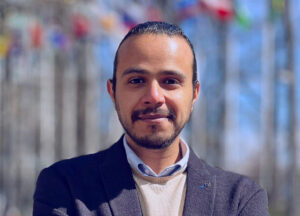 Mostafa Fouad is an exiled Egyptian human rights defender and lawyer with over ten years of experience in MENA civil society. He previously worked as a researcher at Columbia University’s Global Freedom of Expression project. Currently, he leads HuMENA's programs, focusing on capacity building and empowering HRDs, activists, the MENA diaspora, and social movements across the region to foster transformational change in innovative ways. He is also a co-founder of several networks, including the Innovation for Change Network – MENA Hub and the MENA Network for Countering Hate Speech. His human rights research covers various topics such as gender, exile, democracy, justice, hate speech, and accountability. Mostafa is dedicated to creating positive change.
Read his REACT blog post, co-authored with Sarah:
Mostafa Fouad is an exiled Egyptian human rights defender and lawyer with over ten years of experience in MENA civil society. He previously worked as a researcher at Columbia University’s Global Freedom of Expression project. Currently, he leads HuMENA's programs, focusing on capacity building and empowering HRDs, activists, the MENA diaspora, and social movements across the region to foster transformational change in innovative ways. He is also a co-founder of several networks, including the Innovation for Change Network – MENA Hub and the MENA Network for Countering Hate Speech. His human rights research covers various topics such as gender, exile, democracy, justice, hate speech, and accountability. Mostafa is dedicated to creating positive change.
Read his REACT blog post, co-authored with Sarah:
 Solafa Magdy is an award-winning Egyptian journalist and human rights defender who endured nearly two years of imprisonment in Egypt due to her journalistic work and advocacy for human rights. She lives in exile in France, having been recognized by the Paris mayor for her dedication to defending human rights in the face of threats and unjust sentences. A graduate of Ain Shams University in Cairo with a law degree, Solafa has contributed to national and international media outlets, her experiences have fostered a deep understanding of the issues facing the Middle East and North Africa, from political transitions to pressing human rights concerns.
Read her REACT blog post:
Solafa Magdy is an award-winning Egyptian journalist and human rights defender who endured nearly two years of imprisonment in Egypt due to her journalistic work and advocacy for human rights. She lives in exile in France, having been recognized by the Paris mayor for her dedication to defending human rights in the face of threats and unjust sentences. A graduate of Ain Shams University in Cairo with a law degree, Solafa has contributed to national and international media outlets, her experiences have fostered a deep understanding of the issues facing the Middle East and North Africa, from political transitions to pressing human rights concerns.
Read her REACT blog post:
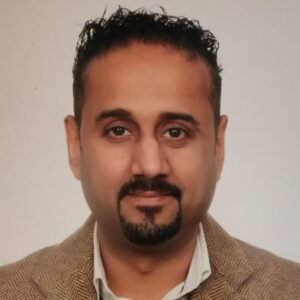 Sayed Yusuf Almuhafdha is a prominent human rights defender, researcher, trainer and expert with 15 years experience in human rights advocacy in Bahrain. He has been awarded several international awards in recognition of his continuous efforts in advocating for justice and freedom of the press in Bahrain. Sayed held leadership positions with the Bahrain Center for Human Rights and Salam for Democracy and Human Rights working on human rights advocacy in Europe. In spring of 2014, Sayed Yusuf went into exile in Germany, following continuous judicial harassment and threats to his life.
Read his REACT blog post:
Sayed Yusuf Almuhafdha is a prominent human rights defender, researcher, trainer and expert with 15 years experience in human rights advocacy in Bahrain. He has been awarded several international awards in recognition of his continuous efforts in advocating for justice and freedom of the press in Bahrain. Sayed held leadership positions with the Bahrain Center for Human Rights and Salam for Democracy and Human Rights working on human rights advocacy in Europe. In spring of 2014, Sayed Yusuf went into exile in Germany, following continuous judicial harassment and threats to his life.
Read his REACT blog post:
Supporting Nonviolent Action When You’re New to the Movement Space
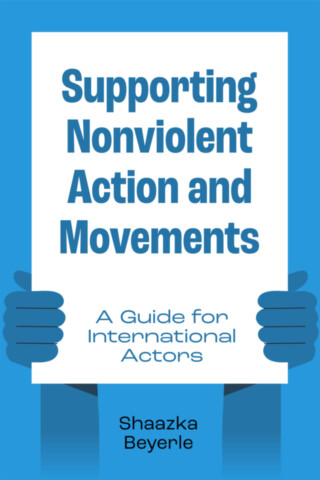 [embed]https://youtu.be/5S62qzAPqZs[/embed]
[embed]https://youtu.be/5S62qzAPqZs[/embed]
Webinar Description
A webinar with Shaazka Beyerle about her new U.S. Institute of Peace (USIP) publication, Supporting Nonviolent Action and Movements: A Guide for International Actors. Many organizations are becoming interested in engaging with activists. Yet how does a "newbie" organization—one that is new to the movement space and does not have an activist network per se—decide whether to develop an initiative to support activists? What internal and external factors should the newbie organization look at to make that decision? When should an organization not engage with activists directly, and what are their alternatives?
In this webinar, Shaazka Beyerle will discuss concrete approaches to addressing these questions, touching on shifting power relations, constructive engagement and alternative approaches for implementation of support activities. The guide is based on extensive interviews with international actors from bilateral government donors, implementing partners, private foundations, donor collaboratives, INGOs, multilateral development institutions, and multi-stakeholder initiatives, as well as a USIP-led, multi-country field investigation on the effects of external support for social movement actors.
About the Presenter
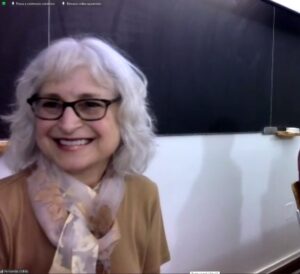 Shaazka Beyerle is a senior fellow with the Terrorism, Transnational Crime, and Corruption Center, George Mason University. She’s a researcher, writer, and educator in nonviolent action, focusing on anti-corruption, accountability, peacebuilding, gender, and human rights. Her new publication is Supporting Nonviolent Action and Movements: A Guide for International Actors (United States Institute of Peace). She’s also the author of Curtailing Corruption: People Power for Accountability and Justice (Lynne Rienner Publishers); and chapter coauthor on enabling civil society and social movements in Untapped Power: Leveraging Diversity and Inclusion for Conflict and Development (Oxford University Press).
Shaazka Beyerle is a senior fellow with the Terrorism, Transnational Crime, and Corruption Center, George Mason University. She’s a researcher, writer, and educator in nonviolent action, focusing on anti-corruption, accountability, peacebuilding, gender, and human rights. Her new publication is Supporting Nonviolent Action and Movements: A Guide for International Actors (United States Institute of Peace). She’s also the author of Curtailing Corruption: People Power for Accountability and Justice (Lynne Rienner Publishers); and chapter coauthor on enabling civil society and social movements in Untapped Power: Leveraging Diversity and Inclusion for Conflict and Development (Oxford University Press).
Supporting Activist Writing: A Conversation with Social Justice Editors
[embed]https://youtu.be/CLwDahwDINY[/embed]
Webinar Description:
A webinar with social justice editors Firoze Manji (founder of Daraja Press and Pambazuka News and Press), Arzu Geybullayeva (digital activist, journalist, board member and editor with Global Voices), Laurence Cox (co-editor of the brand new Handbook of Research Methods and Applications for Social Movements, Edward Elgar Publishing), and Eric Stoner (founding co-editor of Waging Nonviolence) about best practices in supporting activist writing. This panel discussion was facilitated by Nadine Bloch (Training Director of Beautiful Trouble) and Amber French, REACT Project Co-Lead and Managing Editor of ICNC’s blog, Minds of the Movement.
Are you an activist-writer or are aspiring to do more writing about your activism? This webinar will be a unique opportunity for you to exchange directly with prominent editors who run news and/or writing outlets focused on movements, social justice and human rights. Are you an activist or professional whose work intersects with movements, who is interested in pursuing research about movements or activism? This webinar will be your chance to interact with an expert on research methods about, and for, social movements.
We will explore the common challenges and opportunities of activist writing; the themes of power asymmetries in writer/editor relationships; best practices for supporting activist-writers; and many other pressing questions. The webinar will last 1H30 total (including 30-45 minutes for participant Q&A).
About the Presenters:
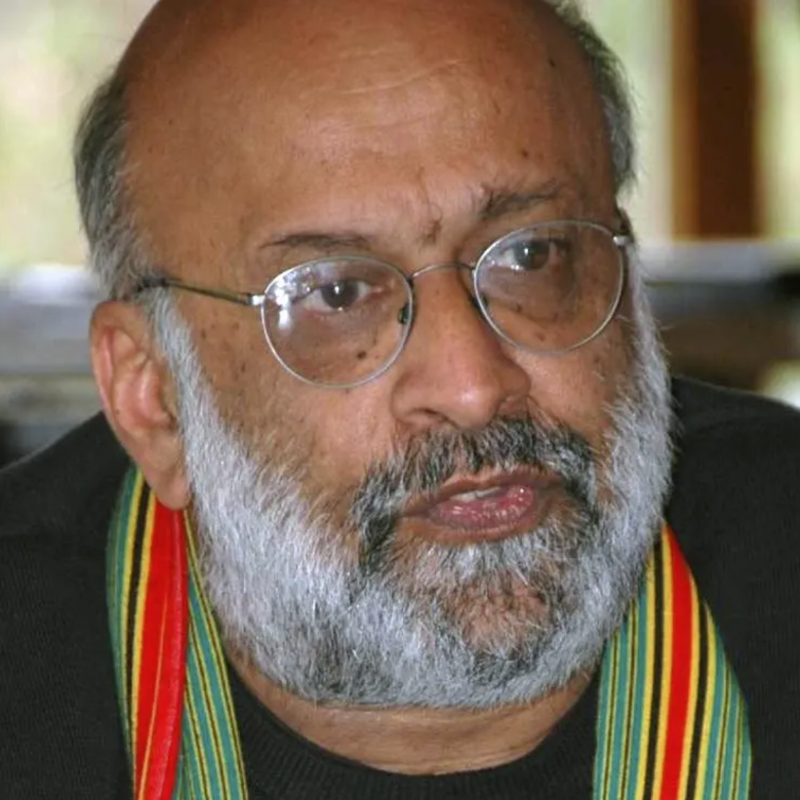 Firoze Manji is a Kenyan with more than 40 years’ experience in international development, health and human rights, founder of Daraja Press,the prize-winning pan African social justice newsletter and website Pambazuka News and Pambazuka Press, founder of Fahamu – Networks for Social Justice (1997-2010), and host of the online interview series Organising in the time of Covid-19. He is Adjunct Professor at the Institute of African Studies and Contract Instructor, Carleton University, Ottawa, Canada; Richard von Weizsäcker Fellow at the Robert Bosch Academy, Berlin; Visiting Fellow at Kellogg College, University of Oxford (2001-2016) and Associate Fellow of the Institute for Policy Studies. He is a member of several editorial and editorial review boards including the Global Critical Caribbean Thought, Nokoko, to name a few.
Firoze Manji is a Kenyan with more than 40 years’ experience in international development, health and human rights, founder of Daraja Press,the prize-winning pan African social justice newsletter and website Pambazuka News and Pambazuka Press, founder of Fahamu – Networks for Social Justice (1997-2010), and host of the online interview series Organising in the time of Covid-19. He is Adjunct Professor at the Institute of African Studies and Contract Instructor, Carleton University, Ottawa, Canada; Richard von Weizsäcker Fellow at the Robert Bosch Academy, Berlin; Visiting Fellow at Kellogg College, University of Oxford (2001-2016) and Associate Fellow of the Institute for Policy Studies. He is a member of several editorial and editorial review boards including the Global Critical Caribbean Thought, Nokoko, to name a few.
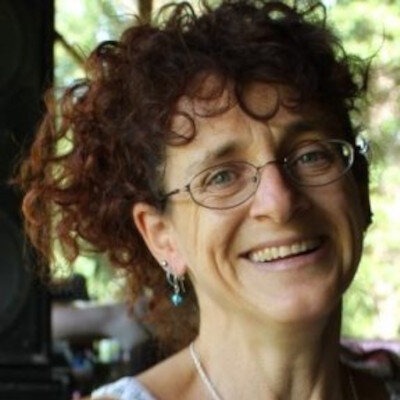 Nadine Bloch is an activist artist, political community organizer, strategic nonviolent actionista and the Training Director for Beautiful Trouble. Her work explores the potent intersection of art and politics, where creative cultural resistance is an effective political action, and a powerful way to reclaim agency over our own lives, fight oppressive systems, and invest in our communities — all while having more fun than the other side! In addition to contributing content to Beautiful Trouble, Beautiful Rising, and We Are Many: Reflections on Movement Strategy from Occupation to Liberation (2012, AK Press), she is the author of Education & Training in Nonviolent Resistance (2016, USIP) and the co-author of SNAP: An Action Guide to Synergizing Nonviolent Action and Peacebuilding (2019, USIP). Find more of her writing on arts and activism at WagingNonviolence.org.
Nadine Bloch is an activist artist, political community organizer, strategic nonviolent actionista and the Training Director for Beautiful Trouble. Her work explores the potent intersection of art and politics, where creative cultural resistance is an effective political action, and a powerful way to reclaim agency over our own lives, fight oppressive systems, and invest in our communities — all while having more fun than the other side! In addition to contributing content to Beautiful Trouble, Beautiful Rising, and We Are Many: Reflections on Movement Strategy from Occupation to Liberation (2012, AK Press), she is the author of Education & Training in Nonviolent Resistance (2016, USIP) and the co-author of SNAP: An Action Guide to Synergizing Nonviolent Action and Peacebuilding (2019, USIP). Find more of her writing on arts and activism at WagingNonviolence.org.
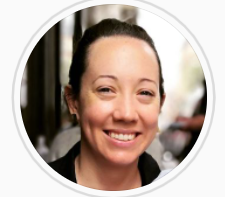 Amber French is ICNC Senior Editorial Advisor, Managing Editor of the Minds of the Movement blog (est. June 2017) and Project Co-Lead of REACT (Research-in-Action). For the Minds of the Movement blog, she has commissioned 290+ articles by 130+ activist writers, academics, and others around the world. Having launched and managed ICNC Press in its first three years, she edited nine publications written by scholars and activists. Currently based in Paris, France, writes frequently about civil resistance for a variety of French journals; teaches a People Power course at the European School of Social and Political Science in Lille; and is leading the development of an ICNC online course in French (forthcoming 2024/2025). She is originally from New Orleans, Louisiana, USA.
Amber French is ICNC Senior Editorial Advisor, Managing Editor of the Minds of the Movement blog (est. June 2017) and Project Co-Lead of REACT (Research-in-Action). For the Minds of the Movement blog, she has commissioned 290+ articles by 130+ activist writers, academics, and others around the world. Having launched and managed ICNC Press in its first three years, she edited nine publications written by scholars and activists. Currently based in Paris, France, writes frequently about civil resistance for a variety of French journals; teaches a People Power course at the European School of Social and Political Science in Lille; and is leading the development of an ICNC online course in French (forthcoming 2024/2025). She is originally from New Orleans, Louisiana, USA.
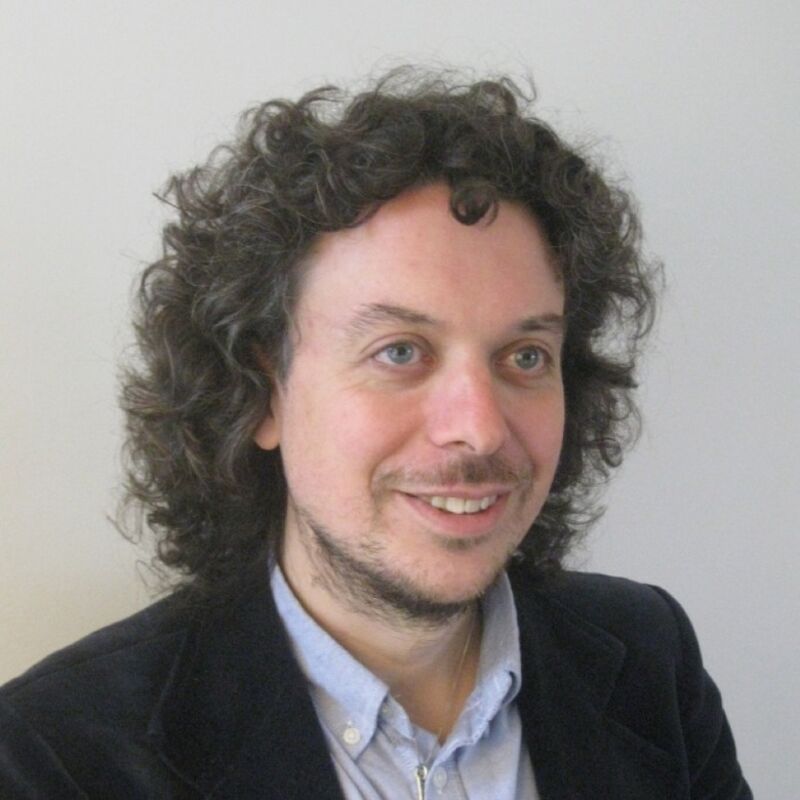 Laurence Cox is a Dublin-based writer, teacher and researcher who has been involved in many different movements since the 1980s. He has edited many activists' work as co-editor of Interface (https://www.interfacejournal.net/), the activist/academic journal for social movement research. Laurence has written and edited 15 books, ranging from an ebook to support the Zapatista delegation to Europe to an Oxford University Press hardback (The Irish Buddhist: the Forgotten Monk who Faced Down the British Empire). With Sutapa Chattopadhyay, Alberto Arribas Lozano and Ania Szolucha he's just edited the Handbook of Research Methods and Applications for Social Movements (introduction available for free here: https://www.elgaronline.com/downloadpdf/edcollchap/book/9781803922027/book-part-9781803922027-6.pdf) which emphasizes research from and for movements and experiences from the global South. Laurence is professor of sociology at the National University of Ireland Maynooth and has been writing for ICNC's blog, Minds of the Movement since January 2020.
Laurence Cox is a Dublin-based writer, teacher and researcher who has been involved in many different movements since the 1980s. He has edited many activists' work as co-editor of Interface (https://www.interfacejournal.net/), the activist/academic journal for social movement research. Laurence has written and edited 15 books, ranging from an ebook to support the Zapatista delegation to Europe to an Oxford University Press hardback (The Irish Buddhist: the Forgotten Monk who Faced Down the British Empire). With Sutapa Chattopadhyay, Alberto Arribas Lozano and Ania Szolucha he's just edited the Handbook of Research Methods and Applications for Social Movements (introduction available for free here: https://www.elgaronline.com/downloadpdf/edcollchap/book/9781803922027/book-part-9781803922027-6.pdf) which emphasizes research from and for movements and experiences from the global South. Laurence is professor of sociology at the National University of Ireland Maynooth and has been writing for ICNC's blog, Minds of the Movement since January 2020.
 Eric Stoner is a co-founding editor at Waging Nonviolence, a non-profit media platform that covers social movements and activism around the world. Since 2009, it has published original reporting from contributors in more than 90 countries. He also teaches civil resistance at St. Joseph’s University, New York.
Eric has reported from Afghanistan and the Philippines, and his articles have appeared in The Guardian, Sojourners and In These Times, among other publications. His op-eds are nationally syndicated and have appeared in dozens of newspapers, including the San Francisco Chronicle, Minneapolis Star Tribune and Newsday.
Eric Stoner is a co-founding editor at Waging Nonviolence, a non-profit media platform that covers social movements and activism around the world. Since 2009, it has published original reporting from contributors in more than 90 countries. He also teaches civil resistance at St. Joseph’s University, New York.
Eric has reported from Afghanistan and the Philippines, and his articles have appeared in The Guardian, Sojourners and In These Times, among other publications. His op-eds are nationally syndicated and have appeared in dozens of newspapers, including the San Francisco Chronicle, Minneapolis Star Tribune and Newsday.
 Arzu Geybullayeva is Board Member, South Caucasus and Turkey Editor of Global Voices, which she joined in 2010. An Azerbaijani columnist and writer, she has a special focus in digital authoritarianism and its implications on human rights and press freedom in Azerbaijan. Arzu has written for Al Jazeera, Eurasianet, Foreign Policy Democracy Lab, CODA, Open Democracy, Radio Free Europe, and CNN International. She is a regular contributor at IWPR, Osservatorio Balcani e Caucaso and Global Voices. In 2019, Arzu launched Azerbaijan Internet Watch, a platform that documents, and monitors information controls in Azerbaijan.
Arzu Geybullayeva is Board Member, South Caucasus and Turkey Editor of Global Voices, which she joined in 2010. An Azerbaijani columnist and writer, she has a special focus in digital authoritarianism and its implications on human rights and press freedom in Azerbaijan. Arzu has written for Al Jazeera, Eurasianet, Foreign Policy Democracy Lab, CODA, Open Democracy, Radio Free Europe, and CNN International. She is a regular contributor at IWPR, Osservatorio Balcani e Caucaso and Global Voices. In 2019, Arzu launched Azerbaijan Internet Watch, a platform that documents, and monitors information controls in Azerbaijan.
Resisting Violence & Dictatorship in Africa
[embed]https://youtu.be/FHGkoqREnk8[/embed]
[En français ci-dessous]
 Webinar with Steward Muhindo, Abdou Khafor Kandji, Eliane Feza, and an anonymous presenter from Cameroon
April 4, 2024
Note: This recording is in French with English interpretation. You will see language options at the bottom of the screen.
Webinar with Steward Muhindo, Abdou Khafor Kandji, Eliane Feza, and an anonymous presenter from Cameroon
April 4, 2024
Note: This recording is in French with English interpretation. You will see language options at the bottom of the screen.
Webinar Details
Listen to activist-writers present their REACT blog posts about nonviolently resisting violence and dictatorship in Francophone Africa. We heard about:
- the Y'en a Marre movement ("Enough is Enough") for a more democratic Senegal, a country considered for a long time as a stable African democracy but that is now facing electoral turmoil and resurging authoritarianism;
- the On Est Ensemble movement in Cameroon, which is organizing to win environmental justice and workers' rights against the multinational corporation, Castel; and
- Bosembo, the art of slam (poetry in rap) in service of advancing peace and justice in the Democratic Republic of Congo, a country whose people have suffered for decades from societal violence and impunity. Due to connection difficulties, we did not hear all of Eliane's presentation. Read her article here.
- + Anonymous presenter from Cameroon
Steward Muhindo of La LUCHA, a nonviolent movement for a more just and peaceful Congo, facilitated the webinar, alongside the above contributors to his guest-edited REACT blog series.
About the Presenters
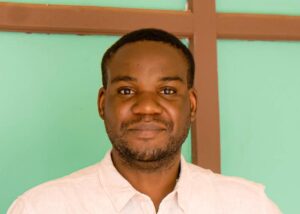 Steward Muhindo Kalyamughuma is an activist with the non-violent, non-partisan citizen movement LUCHA (Lutte pour le Changement), which has been campaigning peacefully for peace, democracy, justice and good governance in the Democratic Republic of Congo since 2012. A lawyer by training, Steward Muhindo is also attached to the Centre de Recherche sur l'Environnement, la Démocratie et les Droits de l'Homme (CREDDHO) as a researcher on human rights and the armed conflicts that have shaken the eastern Democratic Republic of Congo since 1996.
Steward Muhindo Kalyamughuma is an activist with the non-violent, non-partisan citizen movement LUCHA (Lutte pour le Changement), which has been campaigning peacefully for peace, democracy, justice and good governance in the Democratic Republic of Congo since 2012. A lawyer by training, Steward Muhindo is also attached to the Centre de Recherche sur l'Environnement, la Démocratie et les Droits de l'Homme (CREDDHO) as a researcher on human rights and the armed conflicts that have shaken the eastern Democratic Republic of Congo since 1996.
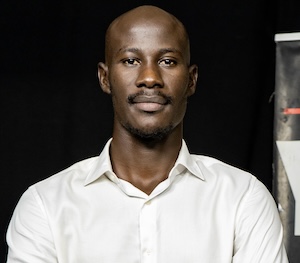 Abdou Khafor Kandji was born and raised in Diourbel, a region of Senegal located over a hundred kilometers from Dakar. He holds a degree in business and organization management from the Institut Africain de Management (IAM). He became an activist in the Y en a Marre movement in 2012. Since 2014, he has held various positions within the movement, notably in coordination. Since October 2023, he has been pursuing a master's degree in monitoring and evaluation of projects, programs and policies at the Centre Africain d'Etudes Supérieur en Gestion (Cesag).
Abdou Khafor Kandji was born and raised in Diourbel, a region of Senegal located over a hundred kilometers from Dakar. He holds a degree in business and organization management from the Institut Africain de Management (IAM). He became an activist in the Y en a Marre movement in 2012. Since 2014, he has held various positions within the movement, notably in coordination. Since October 2023, he has been pursuing a master's degree in monitoring and evaluation of projects, programs and policies at the Centre Africain d'Etudes Supérieur en Gestion (Cesag).
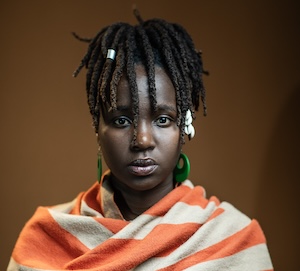 Eliane Feza was born in Goma in the province of Nord-Kivu in the east of the Democratic Republic of the Congo. Trained as a lawyer with a master's degree in criminal law, Eliane is a slam artist with the Goma slam session collective, and a trainer in slam therapy and slam-feminin. Blogger, women's and children's rights activist, environmental activist, public speaking trainer, peacebuilder, humanitarian volunteer with the GOMA ACTIF collective, PRIX RÉGIONAL DES JEUNES INNOVATEURS (2023) of the Great Lakes region and PRIX JEUNES ESPOIRS (2023) of the Democratic Republic of the Congo and its diaspora, awarded to 100 young Congolese who initiate initiatives contributing to the achievement of the 2030 Agenda.
+ Anonymous presenter from Cameroon
About REACT
ICNC launched in 2023 a collaboration with ActionAid Denmark entitled, "Research In Action" or REACT for short. The project was conceived as a global research program with the goal to create useful knowledge from and for nonviolent movements. The collaboration is based on four key principles:
Eliane Feza was born in Goma in the province of Nord-Kivu in the east of the Democratic Republic of the Congo. Trained as a lawyer with a master's degree in criminal law, Eliane is a slam artist with the Goma slam session collective, and a trainer in slam therapy and slam-feminin. Blogger, women's and children's rights activist, environmental activist, public speaking trainer, peacebuilder, humanitarian volunteer with the GOMA ACTIF collective, PRIX RÉGIONAL DES JEUNES INNOVATEURS (2023) of the Great Lakes region and PRIX JEUNES ESPOIRS (2023) of the Democratic Republic of the Congo and its diaspora, awarded to 100 young Congolese who initiate initiatives contributing to the achievement of the 2030 Agenda.
+ Anonymous presenter from Cameroon
About REACT
ICNC launched in 2023 a collaboration with ActionAid Denmark entitled, "Research In Action" or REACT for short. The project was conceived as a global research program with the goal to create useful knowledge from and for nonviolent movements. The collaboration is based on four key principles:
- Addressing understudied areas and research lesser-known cases and realities
- Engaging activists as authors and guest editors
- Focusing on issues, collaborators, cases, networks and stories from outside the Global North
- Experimenting with new engaging formats
Writing is a central building block of our collaboration. We—the REACT team alongside a dozen activist-authors from all world regions—will use Minds of the Movement as a space to explore, express, exchange and elaborate. Check out our work so far: "REACT Series, powered by ActionAid Denmark".
Our activist-writers are engaged in nonviolent movements for diverse causes, but they all have one thing in common: A relationship to writing that transcends the personal and ventures well into the domain of collective power.
Résister à la violence et à la dictature en Afrique francophone
Webinaire avec Steward Muhindo, Abdou Khafor Kandji, Eliane Feza, et un présentateur anonyme du Cameroun
4 avril 2024
 Note : Cet enregistrement est en français avec interprétation en anglais. Vous verrez les options de langue en bas de l'écran.
Note : Cet enregistrement est en français avec interprétation en anglais. Vous verrez les options de langue en bas de l'écran.
Détails du webinaire
Ecoutez des militants-écrivains présenter leurs articles de blog REACT sur la résistance non-violente à la violence et à la dictature en Afrique francophone. Vous entendez parler (LIENS AUX ARTICLES EN BLEU) :
- Du mouvement Y'en a Marre au Sénégal, un pays considéré pendant longtemps comme une démocratie africaine stable mais qui était récemment confronté à des troubles électoraux et à la résurgence de l'autoritarisme ;
- Du mouvement On Est Ensemble au Cameroun, qui s'organise pour obtenir la justice environnementale et les droits des travailleurs contre la multinationale Castel ; et
- du Bosembo, l'art du slam (poésie en rap) au service de la paix et de la justice en République démocratique du Congo, un pays dont le peuple souffre depuis des décennies de la violence sociétale et de l'impunité. Ecoutez un enregistrement audio de l'intervention d'Eliane (des problèmes de connexion nous ont empêché de tout entendre).
Steward Muhindo de La LUCHA, un mouvement non-violent pour un Congo plus juste et pacifique, a animé le webinaire, aux côtés des contributeurs à sa série de blogs REACT.
À propos des intervenant.e.s
 Steward Muhindo Kalyamughuma est un activiste du mouvement citoyen non violent et non partisan LUCHA (Lutte pour le Changement), qui fait campagne pacifiquement pour la paix, la démocratie, la justice et la bonne gouvernance en République démocratique du Congo depuis 2012. Juriste de formation, Steward Muhindo est également attaché au Centre de Recherche sur l'Environnement, la Démocratie et les Droits de l'Homme (CREDDHO) en tant que chercheur sur les droits de l'homme et les conflits armés qui secouent l'est de la République démocratique du Congo depuis 1996.
Steward Muhindo Kalyamughuma est un activiste du mouvement citoyen non violent et non partisan LUCHA (Lutte pour le Changement), qui fait campagne pacifiquement pour la paix, la démocratie, la justice et la bonne gouvernance en République démocratique du Congo depuis 2012. Juriste de formation, Steward Muhindo est également attaché au Centre de Recherche sur l'Environnement, la Démocratie et les Droits de l'Homme (CREDDHO) en tant que chercheur sur les droits de l'homme et les conflits armés qui secouent l'est de la République démocratique du Congo depuis 1996.
 Abdou Khafor Kandji est né et a grandi à Diourbel, une région du Sénégal située à plus d'une centaine de kilomètres de Dakar. Il est titulaire d'un diplôme en gestion des affaires et des organisations de l'Institut Africain de Management (IAM). Il a commencé à militer au sein du mouvement Y en a Marre en 2012. Depuis 2014, il a occupé différentes fonctions au sein du mouvement, notamment à la coordination. Depuis octobre 2023, il poursuit un master en suivi et évaluation des projets, programmes et politiques au Centre Africain d'Études Supérieur en Gestion (Cesag).
Abdou Khafor Kandji est né et a grandi à Diourbel, une région du Sénégal située à plus d'une centaine de kilomètres de Dakar. Il est titulaire d'un diplôme en gestion des affaires et des organisations de l'Institut Africain de Management (IAM). Il a commencé à militer au sein du mouvement Y en a Marre en 2012. Depuis 2014, il a occupé différentes fonctions au sein du mouvement, notamment à la coordination. Depuis octobre 2023, il poursuit un master en suivi et évaluation des projets, programmes et politiques au Centre Africain d'Études Supérieur en Gestion (Cesag).
 Eliane Feza est née à Goma, dans la province du Nord-Kivu, à l'est de la République démocratique du Congo. Avocate de formation, titulaire d'une maîtrise en droit pénal, Eliane est slameuse au sein du collectif Goma slam session et formatrice en slam thérapie et slam-féminin. Blogueuse, activiste des droits de la femme et de l'enfant, activiste environnementale, formatrice en art oratoire, bâtisseuse de paix, volontaire humanitaire avec le collectif GOMA ACTIF, PRIX RÉGIONAL DES JEUNES INNOVATEURS (2023) de la région des Grands Lacs et PRIX JEUNES ESPOIRS (2023) de la République démocratique du Congo et de sa diaspora, décernés à 100 jeunes congolais qui initient des initiatives contribuant à la réalisation de l'Agenda 2030.
+ Intervenant anonyme du Cameroun
À propos de REACT
ICNC a lancé en 2023 une collaboration avec ActionAid Danemark intitulée "Research In Action" (recherche en action) ou REACT. Le projet a été conçu comme un programme de recherche global dont l'objectif est de créer des connaissances utiles à partir des mouvements non-violents et pour ces derniers. La collaboration repose sur quatre principes clés :
Eliane Feza est née à Goma, dans la province du Nord-Kivu, à l'est de la République démocratique du Congo. Avocate de formation, titulaire d'une maîtrise en droit pénal, Eliane est slameuse au sein du collectif Goma slam session et formatrice en slam thérapie et slam-féminin. Blogueuse, activiste des droits de la femme et de l'enfant, activiste environnementale, formatrice en art oratoire, bâtisseuse de paix, volontaire humanitaire avec le collectif GOMA ACTIF, PRIX RÉGIONAL DES JEUNES INNOVATEURS (2023) de la région des Grands Lacs et PRIX JEUNES ESPOIRS (2023) de la République démocratique du Congo et de sa diaspora, décernés à 100 jeunes congolais qui initient des initiatives contribuant à la réalisation de l'Agenda 2030.
+ Intervenant anonyme du Cameroun
À propos de REACT
ICNC a lancé en 2023 une collaboration avec ActionAid Danemark intitulée "Research In Action" (recherche en action) ou REACT. Le projet a été conçu comme un programme de recherche global dont l'objectif est de créer des connaissances utiles à partir des mouvements non-violents et pour ces derniers. La collaboration repose sur quatre principes clés :
- Aborder des domaines peu étudiés et rechercher des cas et des réalités moins connus
- Impliquer les activistes en tant qu'auteurs et éditeurs invités
- Se concentrer sur des questions, des collaborateurs, des cas, des réseaux et des histoires en dehors des pays occidentaux.
- Expérimenter de nouveaux formats engageants
L'écriture est un élément central de notre collaboration. Nous, l'équipe REACT, ainsi qu'une douzaine de militants-auteurs de toutes les régions du monde, utiliserons Minds of the Movement comme un espace d'exploration, d'expression, d'échange et d'élaboration. Découvrez notre travail jusqu'à présent : "REACT Series, powered by ActionAid Denmark" (en anglais pour la plupart, avec certains traduits en espagnol et en français).
Nos activistes-auteurs sont engagés dans des mouvements non-violents pour des causes diverses, mais ils ont toutes et tous une chose en commun : une relation à l'écriture qui transcende l'aspect personnel et s'aventure dans le domaine du pouvoir collectif.
Book Launch: How Youth in Zambia Are Reclaiming Politics
Webinar with Nalishebo Sinyama and Mary Mwaba
[caption id="attachment_48375" align="alignright" width="1024"]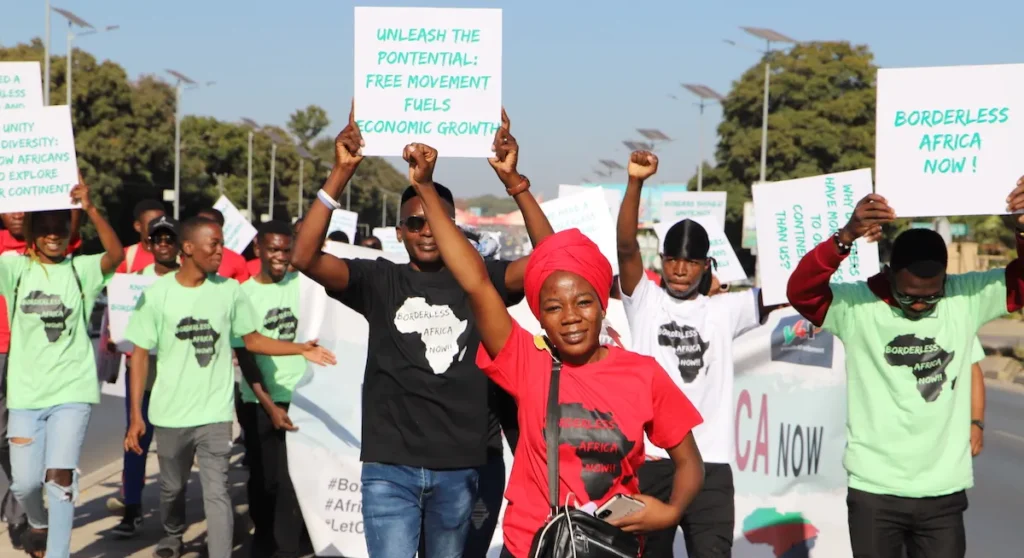 Credit: Youth4Parliament[/caption]
Credit: Youth4Parliament[/caption]
About the Webinar
Join ICNC for the release of our newest publication, New Blood: How Youth in Zambia Are Reclaiming Politics. This book was written by the founders and core team of Youth4Parliament, a dynamic movement that has transformed the political landscape in Zambia. Movement Manager Nalishebo Sinyama and Core Team Member Mary Mwaba will discuss the story of the movement so far and how they are preparing for the 2026 elections.
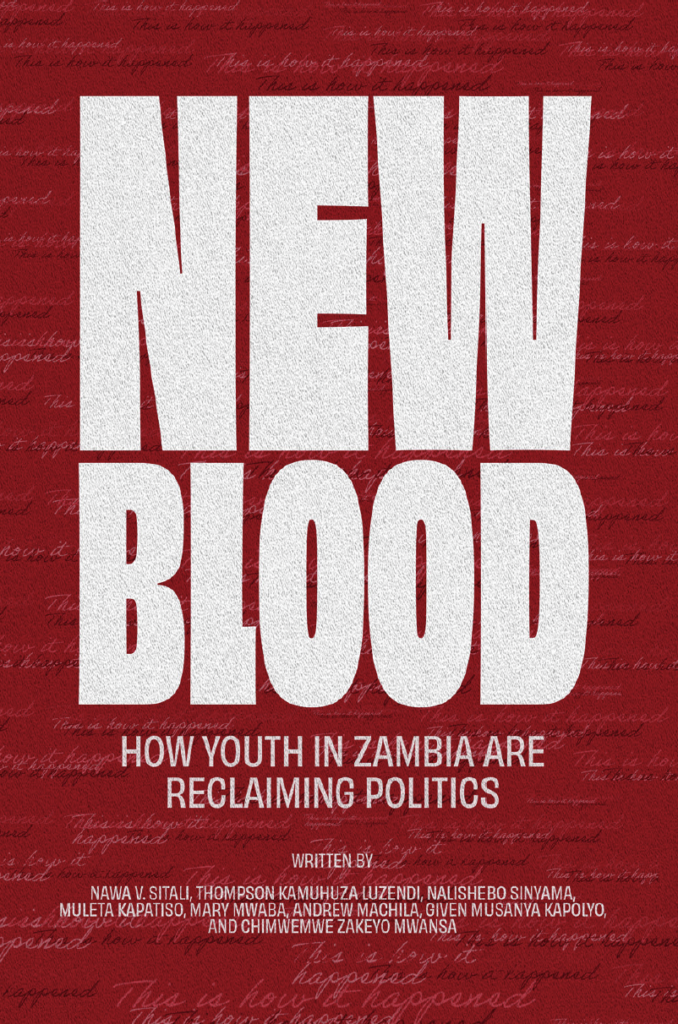
About the Book
In 2018, Zambia grappled with political turmoil, a stifled democratic process, and marginalized youth voices. Physical violence among youth from different political factions was a hard reality. Amid this chaos, two friends from opposing parties began the Youth4Parliament (Y4P) movement, igniting a transformation that would reshape Zambia’s political landscape.
Discover how Y4P’s pioneering spirit united young activists across party lines, inspiring a historic shift in the country’s politics. From fostering youth leaders to run for office to mobilizing youth to vote and join an unprecedented emergence of social movements, Y4P’s journey is a testament to the power of youth determination.
This is the story of Youth4Parliament’s first few years—their challenges and victories—told in their own voices. But this book is more than a recounting of their journey; it’s a guidebook for changemakers.
Download Book
About the Presenters
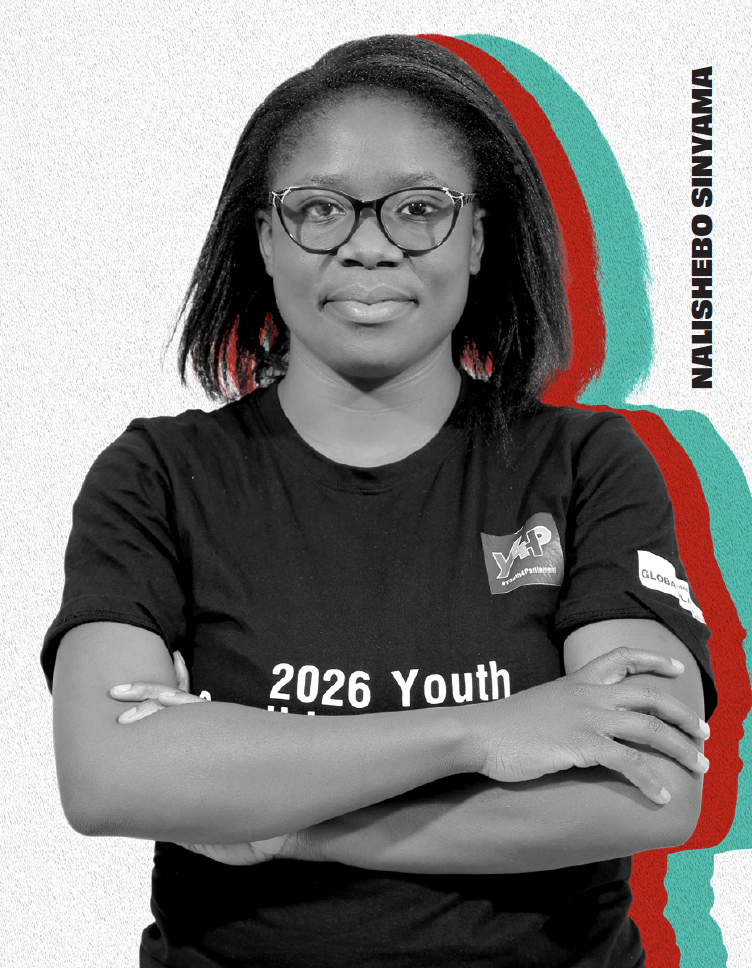 Nalishebo Sinyama is co-author of New Blood and currently serves as the Movement Manager of Youth4Parliament. She is a community organizing specialist, feminist, and young female politician. Nalishebo is the first and youngest woman to be appointed as provincial chairperson in one of the biggest political parties in Zambia. In 2021, Nalishebo was the only female aspirant vying for the Kabwata Constituency parliamentary elections under the opposition political party (the Patriotic Front).
Nalishebo Sinyama is co-author of New Blood and currently serves as the Movement Manager of Youth4Parliament. She is a community organizing specialist, feminist, and young female politician. Nalishebo is the first and youngest woman to be appointed as provincial chairperson in one of the biggest political parties in Zambia. In 2021, Nalishebo was the only female aspirant vying for the Kabwata Constituency parliamentary elections under the opposition political party (the Patriotic Front).
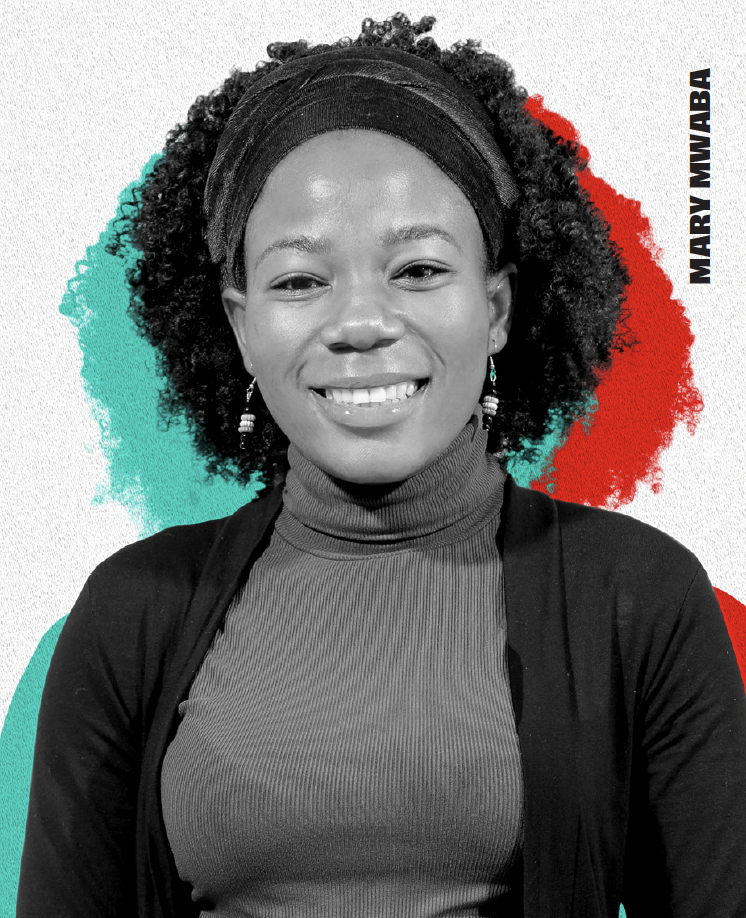 Mary Mwaba is a core team member of Youth4Parliament. She joined the movement in 2019. She is a graduate of the University of Zambia. She is passionate about youth and women leadership, governance, human rights, and sustainable development.
Mary Mwaba is a core team member of Youth4Parliament. She joined the movement in 2019. She is a graduate of the University of Zambia. She is passionate about youth and women leadership, governance, human rights, and sustainable development.
How Israelis Are Fighting Against Democratic Backsliding
Webinar with Doron Shultziner, May 2, 2023
Webinar Outline
Introduction of Speaker: 0:00 – 2:10
Presentation: 2:11 – 32:01
Discussion: 32:02 – 59:14
Webinar Description
Over recent months, Israelis from many parts of society have united and mobilized to oppose a power grab by the incumbent government against the judiciary. How did this popular movement against democratic backsliding form, what are the impacts and implications of its strategies and tactics, and what broader lessons can be learned?
This webinar highlights the main strategies and tactics that have helped channel the fears over the government’s actions into effective political pressures. The webinar illustrates the importance of the weekly mass protests every Saturday alongside a “national disturbance day” to keep the matter on the public agenda and to influence public opinion against the government’s so-called reforms. This webinar assesses how this strategy enabled various groups to participate in line with their specific characteristics and geographic heterogeneity.
In addition, the webinar highlights the major protest tactics that have been most effective in pressuring the government, such as direct pressure on specific politicians, the mobilization of experts (e.g., legal scholars, economists, political scientists), women’s groups, and IDF veterans and pilots, as well as international players. Furthermore, it discusses the importance of social media in organizing protests and disseminating information, along with the role of traditional media channels.
About the Presenter
 Doron Shultziner received his B.A. from the Political Science Department and the Middle Eastern Studies Department in the Hebrew University (2000), and his M.A. (Summa Cum Laude) from the Political Science Department at the Hebrew University (2004). He received his Ph.D. from the Politics & IR Department at the University of Oxford (2008). Later he worked as a post-doctoral fellow and visiting lecturer at Emory University. He returned to Israel in 2009 and worked as a post-doctoral fellow until 2012. He then became the academic director of an Israeli think tank for Zionist, democratic, and liberal thought. Prof. Shultziner joined the Politics & Communication Department at Hadassah Academic College in 2014.
Prof. Shultziner's main areas of research are democracy and democratization, politics and law, theories of social movements, media coverage of protest activity, and partisan media bias, as well as multi-disciplinary approaches to political behavior. Prof. Shultziner is the head of the Politics & Communication Department at Hadassah Academic College Jerusalem since 2018. He is also one of the founders of Mali-Center for Enterprising Citizens, a nonprofit that advances social entrepreneurship.
Doron Shultziner received his B.A. from the Political Science Department and the Middle Eastern Studies Department in the Hebrew University (2000), and his M.A. (Summa Cum Laude) from the Political Science Department at the Hebrew University (2004). He received his Ph.D. from the Politics & IR Department at the University of Oxford (2008). Later he worked as a post-doctoral fellow and visiting lecturer at Emory University. He returned to Israel in 2009 and worked as a post-doctoral fellow until 2012. He then became the academic director of an Israeli think tank for Zionist, democratic, and liberal thought. Prof. Shultziner joined the Politics & Communication Department at Hadassah Academic College in 2014.
Prof. Shultziner's main areas of research are democracy and democratization, politics and law, theories of social movements, media coverage of protest activity, and partisan media bias, as well as multi-disciplinary approaches to political behavior. Prof. Shultziner is the head of the Politics & Communication Department at Hadassah Academic College Jerusalem since 2018. He is also one of the founders of Mali-Center for Enterprising Citizens, a nonprofit that advances social entrepreneurship.
Prison Hunger Strikes: How Prisoners Weaponize Their Lives to Win Dignity
A webinar with Malaka Shwaikh and Rebecca Ruth Gould
April 11, 2023
Webinar Outline
Introduction of Speakers: 0:00 – 5:54
Presentation: 5:55 – 33:16
Discussion: 33:17 – 1:00:04
Webinar Details
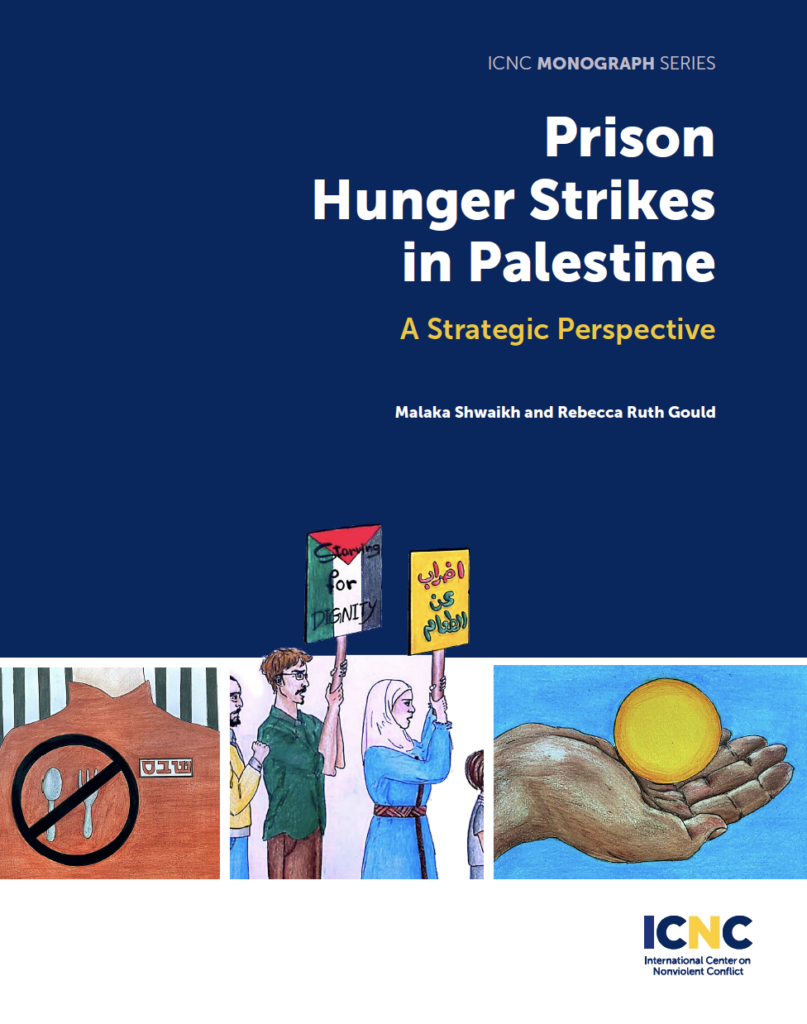 How do prison hunger strikers achieve demands? How do they stay connected with the outside world in a space that is designed to cut them off from that world? And why would a prisoner put their lives at risk by refusing to eat or, at times, drink? This research shows that sometimes prisoners’ need for dignity and freedom trump their hunger pangs and thirst.
In ICNC's newest monograph Prison Hunger Strikes in Palestine, authors Malaka Mohammed Shwaikh and Rebecca Ruth Gould evaluate the process of hunger striking, including the repressive actions prisoners encounter, and the negotiation process. The work’s critical and grassroots understanding of prison hunger strikes fully centers the voices of hunger strikers. The analysis results in actionable takeaways that will be as useful to prison activists as they will be to their allies around the world.
How do prison hunger strikers achieve demands? How do they stay connected with the outside world in a space that is designed to cut them off from that world? And why would a prisoner put their lives at risk by refusing to eat or, at times, drink? This research shows that sometimes prisoners’ need for dignity and freedom trump their hunger pangs and thirst.
In ICNC's newest monograph Prison Hunger Strikes in Palestine, authors Malaka Mohammed Shwaikh and Rebecca Ruth Gould evaluate the process of hunger striking, including the repressive actions prisoners encounter, and the negotiation process. The work’s critical and grassroots understanding of prison hunger strikes fully centers the voices of hunger strikers. The analysis results in actionable takeaways that will be as useful to prison activists as they will be to their allies around the world.
About the Presenters
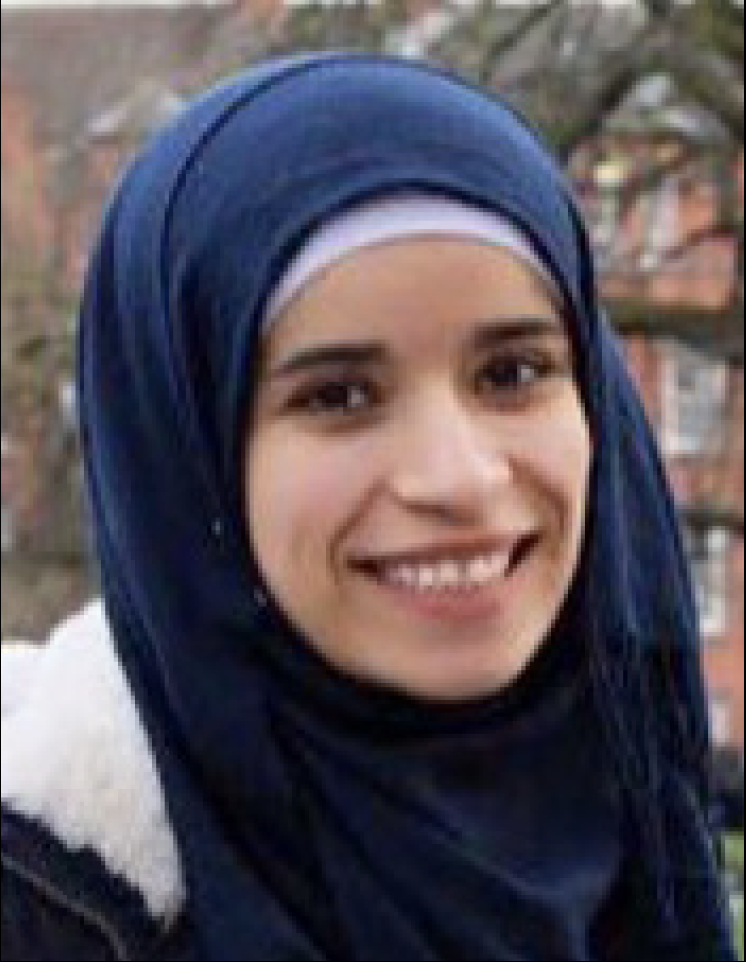 Malaka Mohammed Shwaikh is a Palestinian academic from the Gaza Strip, based at the University of St. Andrews in Scotland where she teaches and researches prisons as spaces of power, resistance, and peacebuilding. She is the author of several works at the intersection of prison resistance and power, including “Dynamics of Prison Resistance: Hunger Strikes by Palestinian Political Prisoners in Israeli Prisons” (Jerusalem Quarterly, 2018), “Engendering Hunger Strikes: Palestinian Women in Israeli Prisons” (British Journal of Middle Eastern Studies, 2020), and most recently, “Prison Periods: Bodily Resistance to Gendered Control” (Journal of Feminist Scholarship, 2022). She finds purpose and joy in giving back to the community and being involved in social justice work. Her most recent and ongoing project (since 2021) is Freelancers in Gaza, with Candace Amani, to connect freelancers in Gaza with clients around the world and provide them with tailored mentorship.
Malaka Mohammed Shwaikh is a Palestinian academic from the Gaza Strip, based at the University of St. Andrews in Scotland where she teaches and researches prisons as spaces of power, resistance, and peacebuilding. She is the author of several works at the intersection of prison resistance and power, including “Dynamics of Prison Resistance: Hunger Strikes by Palestinian Political Prisoners in Israeli Prisons” (Jerusalem Quarterly, 2018), “Engendering Hunger Strikes: Palestinian Women in Israeli Prisons” (British Journal of Middle Eastern Studies, 2020), and most recently, “Prison Periods: Bodily Resistance to Gendered Control” (Journal of Feminist Scholarship, 2022). She finds purpose and joy in giving back to the community and being involved in social justice work. Her most recent and ongoing project (since 2021) is Freelancers in Gaza, with Candace Amani, to connect freelancers in Gaza with clients around the world and provide them with tailored mentorship.
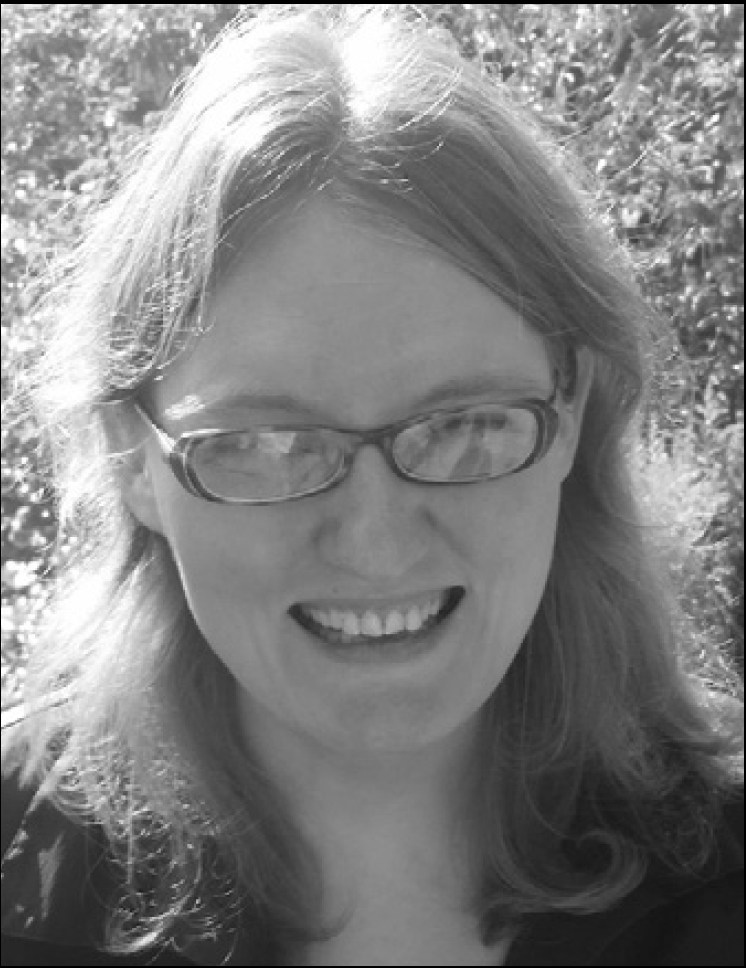 Rebecca Ruth Gould is the author of numerous works at the intersection of aesthetics and politics, including Writers and Rebels: The Literature of Insurgency in the Caucasus (Yale University Press, 2016), The Persian Prison Poem: Sovereignty and the Political Imagination (Edinburgh University Press, 2021), and, most recently, Erasing Palestine: Free Speech and Palestinian Freedom (Verso Books, 2023). Together with Malaka Shwaikh, she is the author of “The Palestine Exception to Academic Freedom: Intertwined Stories from the Frontlines of UK-Based Palestine Activism,” Biography: An Interdisciplinary Quarterly (2020), which brought together their shared interests relating to Palestinian liberation. She is Professor, Islamic World & Comparative Literature, at the University of Birmingham, where she directs the GlobalLIT project.
Rebecca Ruth Gould is the author of numerous works at the intersection of aesthetics and politics, including Writers and Rebels: The Literature of Insurgency in the Caucasus (Yale University Press, 2016), The Persian Prison Poem: Sovereignty and the Political Imagination (Edinburgh University Press, 2021), and, most recently, Erasing Palestine: Free Speech and Palestinian Freedom (Verso Books, 2023). Together with Malaka Shwaikh, she is the author of “The Palestine Exception to Academic Freedom: Intertwined Stories from the Frontlines of UK-Based Palestine Activism,” Biography: An Interdisciplinary Quarterly (2020), which brought together their shared interests relating to Palestinian liberation. She is Professor, Islamic World & Comparative Literature, at the University of Birmingham, where she directs the GlobalLIT project.
Activist Guide: The Power of Writing and Storytelling
By: Amber French, Senior Advisor, International Center for Nonviolent Conflict.
Original presentation prepared for a skills-sharing webinar for Beautiful Trouble, June 3, 2025
This short guide addresses all activists interested in using the tool of writing to further democracy, justice and peace. Any kind of organizing experience is valuable, whether it's funded or not, and writing carries enormous value and power for our movements, whether in the form of storytelling or something else.Writing is our expressed humanity
We are stronger than we think. Authoritarians, corrupt elites and other power abusers dehumanize activists, reducing them to advocates for a cause. Yet grassroots actors are also strong conduits of agency, action, intellect, ideas, imagination, creativity, experience, valuable learnings, emotions... Writing rehumanizes and vehicles solidarity to grassroots leaders engaged in nonviolent struggle for democracy and peace. Activists and their expressed humanity are an under-recognized force to counter violence and injustice in our societies.The term "storytelling"
Storytelling can be defined as tracing our histories back to the very seed of our activism, in a way that logically reconstructs our trajectory so a target readership can understand, make sense of, and learn from it. What are we really talking about when we say storytelling? What kinds of actions and activities? They include:Activist blogging played a crucial role in many Arab Spring revolutions, drawing considerable international attention to nonviolent revolutions in countries like Tunisia and Egypt (Aya Chebbi wrote a very influential activist blog, for example). Writing itself carries the very seed of resistance in it—but also much more. Storytelling helps humanize people—activists—who oppressors do everything in their power to dehumanize. Telling their own 'stories' to an international readership helps activists build bridges with the outside and make external support more activist-centered. In my experience, many human rights defenders want to tell their stories… not everyone, but many. But the narrow frame of storytelling distracts us from an important point. It makes us gloss over the real tool for change, which is the fundamental skill used in storytelling: WRITING, which underpins many multimedia formats beyond just text. You need to engage in writing in order to produce videos, movies, podcasts, art exhibits and so on. Activist writing has been my topic of work for the past 17 years as editor of three online journals—I’ve commissioned 300+ articles from 150+ authors, at least half of whom identify primarily as activists. So in the first part of this guide, I’ll be referring to the writing frame, while the last half will be more specifically focused on storytelling tactics as nonviolent resistance.
- investigative journalism and movement-centered news outlets like Waging Nonviolence and ICNC’s blog;
- engaged publishing (like Daraja Press);
- documenting human rights violations at the grassroots level;
- publishing zines, underground publishing
- fiction writing and poetry;
- activist blogging and podcasting;
- a whole array of multimedia formats: plays, movies, art and so on, which require telling a story;
- writing and translating activist resources (like Beautiful Trouble and the ICNC Resource Library);
- collective applied research reports like the Fatshimetrie campaign in the DRC (discover this fascinating campaign here);
- not to mention the more classic stuff like advocacy campaigns on social media.
The activist writing frame
Engaging in activism often requires dedication, strength, resilience, pain and loss. Writing can sometimes be a long, difficult, time-consuming and painful process for activists. It can bring back trauma. It’s intensely personal. I always tell my authors that writing is a physical extension of their hands, their fingertips; it is part of who they are. The stakes of activist writing are high, both personally for activists and their close circles, and politically for their movements. Importantly, activist writing is very much a function of building self-confidence and developing a sense of entitlement, in a positive sense—the belief or the REALIZATION that we are entitled to a readership, that our experiences and our voices are worth being heard. A sense of entitlement is essential in our activism more broadly: every human is entitled to their human rights, but we don’t all fight for or seize/exercise our rights, because we must first realize we are entitled to them. When we focus on activist writing, we more fully capture the human agency that activists carry as people who accomplish complex, brave, outstanding, smartly calculated tasks at their own peril. The writing frame is also important because the nature of activist writing is very different from the nature of non-activist writing. That is to say, activists sometimes relate differently to writing than non-activists do. They have unique needs as writers. Activist writing is done in real time, in real life, with real human consequences and impacts. It has a normative and political nature. Activist writing is both a process and a product. It is simultaneously an expression of, and catalyst of, truth and human agency. More than just performance, activist writing is performative—which means it has the capacity to remember, to legitimize, to remind, to instruct, to spur action. In short, writing makes our activism whole, and storytelling is only one very small piece of this. But again, don’t worry, this guide will also shed some light on storytelling as resistance.A quick step back
But before we go further into writing or “storytelling” tactics, I want to take a big step back and return to the point of departure of this presentation: That writing is hard when you’re an activist. There are different starting points and categories of activist-writers:The majority of my activist-authors are in this phase, and I commonly have to coach them to identify their successes. Importantly, successes include both outcomes you’d typically view as a success—achieving a movement objective—and what some might consider “failures” and lessons learned.
- Category 1: “I don't have anything worthy to write about. I don’t have anything to say.”
- Category 2: “I have something to write but don't know how to write it, or I don’t know what to write, what parts of my experience to bring out.”
Some of my activist-authors fall into this category, and that’s great, but many of them have a very narrow view of the usefulness of writing, seeing it only as resistance itself (social media campaigns, hashtag activism, etc.). I usually have to coach this kind of activist-author to see their own worth, beyond simply as someone with a grievance that they want to talk about and calls for action they want to advertise. Like I said at the beginning, our oppressors want to reduce activists to that, when in reality, activists have so much to offer to the study and practice of strategic nonviolent struggle. - Take a moment to think about which phase you are in. Are you in phase 1, “I don’t have anything to write about, I don’t have a story to tell”; phase 2, “sure I guess I’d be down to write something, why not, but I don’t know what to uplift and need some guidance”, or phase 3, “I am ready to put pen to paper, I already do a lot of writing and I want to make more of a difference with it”? You might be between two categories. Below are some tools and daily practices that can help activist-writers tap into the full spectrum of human agency that writing offers us, beyond simple advocacy.
- Category 3: “I have many things to write. I'm ready to write them or already am. I am looking for specific tools for specific goals, because I want to make a change with my writing.”
Put on your journalist hat
Think of a confident activist you know. Ask if you can informally interview them. Ask them PURPOSE questions like:And so on. If the person doesn’t give you a straight answer that truly speaks to PURPOSE (this is very common), then probe until you get an answer that is clear and explicit enough. Ask your questions a couple of times, in different ways. Look for holes in their logic. What is missing from their answers in order to really understand why they are an activist? Follow up with questions about specific facts: who, what, when, where, why, how. Take notes and review your notes later to ask yourself what they placed emphasis on. Can you relate? If so, how exactly? Why?
- What was the seed of your activism?
- When did you first start identifying as an activist? Was it spurred by a personal injustice you suffered, or a collective injustice going on around you that at some point you realized was happening?
- How did you come to realize that the personal suffering was in fact an injustice? Or if observed, how did you find out it was happening, a news report, a conversation with someone, some group interaction?
- How did it make you feel? Why didn’t you ignore it?
- Why do you identify as an activist today?
Find a “mirror buddy”, a non-judgmental listener
Ask the shy neighbor who is a decade younger than you, or your mother, or a brother or sister, or the shop cashier you see every week, if they could lend you an ear for 15 minutes (SET A TIMER FOR YOURSELF! Don’t waste their time) so you can tell them more about your work and why you are an activist. Use those informal interview notes you took to guide you. Then, ask this “mirror buddy” (I’ll explain this title) to summarize what you said, and see if they have any questions for you. What did you need to clarify for them? If you don’t want to or can’t find a non-judgmental listener, record yourself. Video is great, but even just audio is scary enough. 🙂 The underlying concept of this exercise is that editors and readers force you to be face to face with yourself. They put a mirror in front of you, and that's what is scary. Find a friendly person to be your mirror to practice in before putting yourself out there.Use informal writing methods
If you would typically write in a blank word processing document, go ahead and do so. Then, open a chat conversation or email (ideally on your mobile phone) and explain to a trusted friend or family member what you wrote and why you wrote it. Then… use THAT text as your written product. When you type in a blank document, it’s hard to imagine your readership, so you tend to fall into platitudes and you’re not really saying what you mean. But when you’re addressing an actual physical listener, you make more of an effort to be understood on that person’s level, and this is good for writing. If you don’t have someone in mind, you can also come up with a couple of specific reader profiles to keep in mind while writing, and their biodata—a South African activist for women’s rights who is 50 years old; a young male Colombian researcher who studies peace communities during the civil war, etc. I always tell my writers: If you want your writing to make a difference, then say what you mean, and mean what you say. This means dropping platitudes, “sacking the teacher in your head” to use the words of a colleague Laurence Cox (you’re not in school anymore, write from your heart!!! Here’s a great example of a blog that was written from the heart, by Mariam Azeem.) Mean what you say means assuming responsibility for your words, owning up to them. They are an extension of you. Go audio: record your voice into a message to yourself or to someone else on WhatsApp, Signal or Telegram if it’s safe to use technology (don’t share personal data). You can playback your message and type and edit the text it renders. It isn’t cheating, it’s being smart and efficient!!! Many years ago, I worked with a French researcher who was visually impaired. This was before apps for the visually impaired became widely available. He was the author of dozens of books—mostly academic studies but also some non-fiction. He wrote his books entirely through diction, instead of typing, because he had not learned to type efficiently, having lost his sight in the early 1980s. I read much of his work and had always noticed how conversational his tone was. When he revealed his writing method to me, it became clear that the speaking element not only made him more efficient and even prolific, it also improved his written voice.Brainstorm your successes
...which necessarily include your failures and lessons learned Brainstorm with your fellow activists if you have achieved something together, whether intentionally or unintentionally. Prompt them with ideas: Did we successfully train people? Did we pull off a nonviolent campaign that had some sort of impact? Ask trusted family or friends: Have I told you something that made you feel proud of me, with regard to my activism? What was it, why were you proud? What difference did it make in your opinion?Learn about all the ways that writing is power
Below are the 38 ways writing is power, which will hopefully spark some ideas on how you can leverage your writing and storytelling to shift power dynamics in small ways and/or flex your agency in bigger ways. A little background about this list, because I didn’t make them up, I just observed and compiled them. So let’s give credit where credit is due. Activists are already doing them; they just perhaps don’t recognize the value of them (they have not developed the confidence or positive sense of entitlement required to recognize the value of them). I’ll also set the scene, since this is also a guide about storytelling :) I attended a gathering of east African activists last winter, who were all leveraging writing in some creative or expository way: as podcasters, TV and film producers, independent journalists, filmmakers, poets, singers, social media influencers, as well as classic "writers." They wrote scripts. They created videos and wrote posts for their Instagram followers. They read to us their poems from published anthologies. They wrote song lyrics. They managed parody news sites and wrote political satire. They managed local NGO communication strategies. Yet what they all had in common was that their writing was normative: it was to nonviolently struggle for human rights and social justice (and this takes many forms beyond simple advocacy—which is a central argument of my presentation). As I listened to the conversations over the course of the four-day gathering, including during a session I co-hosted with Rosie Motene to this effect, I scribbled down mad-scientist looking notes to capture all the ways writing is power. So without further ado, here they are. Writing is… ((check out the Beautiful Trouble tools I've embedded into this list - they guide activists on how to operationalize writing as nonviolent resistance!)What I really like about this list is that it is about how writing IS power, not how writing CAN be power. It's already happening; activists are already leveraging writing in these ways—they are already deriving power from this tool. Take some time to digest this list. Read a few of our REACT activist-authored posts. Come back to the list in a few days. Print it out and show it to your fellow activists. Lead a brainstorming session and solicit some reactions: In our work, have we observed activists using writing for these purposes? If not, why not? What are we missing, what can we do better?
- ...a vehicle for advocacy, raising awareness, movement communications < Beautiful Trouble tool to check out
- ...a vehicle for sense-making, personal reflection as an activist
- ...a vehicle for sense-making, collective reflection as a movement
- ...a source of revenue for activists
- ...a source of revenue for movements
- ...a way to officialize information and events (related to truth-telling) < Beautiful Trouble tool to check out
- ...a way for inter-movement and intra-movement activist learning, education, training and edification to happen
- ...documentary resistance, a way to set the record straight, truth-telling < Beautiful Trouble tool to check out
- ...a way to share information (journalism)
- ...a way to let information get out safely (smoke-writing)
- ...a way to take a step back and see your activism more clearly, to find your way back to your unique, original “why”, to know ourselves better, to know the truth about ourselves in a world where lies our told about us
- ...used to influence or control the narrative about your struggle, to not leave silence about ourselves for others to fill (it’s less about what you say, it’s more about who you are)
- ...a way to generate external support (funding for trainings, international solidarity, unarmed accompaniment for nonviolent movements in conflict zones, etc.)
- ...a way to build trust with external supporters
- ...a way to humanize ourselves, in the face of vociferous dehumanization campaigns led by our oppressors
- ...a way to own up to our activism
- ...a way to resist suffering and let joy reign (humor, satire, parody…)
- ...a way to dramatize injustice (humor, satire, parody…) < Beautiful Trouble tool to check out
- ...a way to keep searching for answers
- ...a way to find connections and common ground with others, to build community
- ...a way to build self-confidence and find your voice
- ...a teambuilding exercise for movements
- ...a way to learn about how others see you (when you write for international outlets and work with editors)
- ...a way to give a voice to the less vocal participants of a movement
- ...a relatively low-risk, low-threshold nonviolent action for those activists who do not wish to be on the frontlines (scrupulous digital security measures must be taken if that writing is to be released publicly, but there are other writing formats and methods that do not require this, like gathering written activist testimonies)
- ...something that can be leveraged to improve gender and minority inclusion in a movement
- ...leaving a trace and thus is noncooperation, because our oppressors want to erase our traces
- ...a way to contribute to the democratization of knowledge
- ...a human right
- ...our duty as activists. By sharing our voices, our insights, our experiences, our successes and failures, we are accountable to all other activists in the world fighting for human rights, freedom, peace and social justice
- ...a way to appropriate power (access to editorial production and publishing)
- ...something that less-trusted movement participants can be entrusted with (you don’t have to do anything with what they write, and you didn’t raise suspicion by trying to exclude them from your movement which could cause panic and make a movement implode)
- ...a way to quickly seize trigger events and shed light on injustice that is happening right now < Beautiful Trouble tool to check out
- ...a tool or strategy, not an action; it promises more when approached with the long term in mind (proactively like building an archive of written activist testimonies, or documenting war crimes) and not as delivering some quick solution (reactively, like launching a hashtag campaign on Twitter)
- ...does not happen in a vacuum. It is normative, it is politically charged, it gives rise to action.
- ...not just performance, it is also performative. It connects words with action. It consummates our activism or makes our activism whole. And it makes us whole as activists.
- ...a way to embrace our humanity
- ...a way to demystify.
The greater human project
I am a firm believer that as difficult, time-consuming and painful as writing can be for some activists, it is really worth it, at the very least on a personal level, for its reflective value. Writing with or without a readership is a transformative experience and a way we can each individually play a role in the greater human project of defending rights, justice and freedom.Further reading
- https://www.nonviolent-conflict.org/blog_post/38-ways-writing-is-power-for-our-nonviolent-struggles/
- https://www.nonviolent-conflict.org/blog_post/power-activist-led-educational-engaged-storytelling/
- https://www.nonviolent-conflict.org/blog_post/writing-about-activism-tactic-lesson-refuge-right/
- https://www.nonviolent-conflict.org/blog_post/dangerous-words-the-cost-of-writing-as-resistance/
New ICNC Partnership with the Institut pour la Paix (France)
ICNC is pleased to announce its new partnership with the Paris-based Institut Pour la Paix (IPP)! IPP's mission is to promote peace studies in the French-speaking, European and international space. Its leadership, staff and members make up a multidisciplinary team drawing from academic, professional and civil society circles. IPP supports working groups on conceptions of peace; gender and peace; the environment and peace; and civil resistance, nonviolence and the culture of peace. Its activities are primarily based in France but its constituencies are based in many regions of the world. [caption id="attachment_49007" align="alignright" width="300"]
ICNC-IPP study day in Paris in 2023. The Working Group identified a need to produce educational materials on civil resistance in French. Credit: Amber French.[/caption] [caption id="attachment_49005" align="alignleft" width="300"]
Study day in Paris, 2023. Credit: Amber French.[/caption] ICNC is a leading organization advancing the study and practice of nonviolent civil resistance to achieve rights, freedom, and justice around the world. ICNC’s distinguished education and training programs have attracted thousands of participants from more than 100 countries. Its research and publications make cutting-edge knowledge accessible to diverse practitioners and scholars. ICNC’s website, with the accompanying blog Minds of the Movement, is a global clearinghouse of information, with resources in over 70 different languages and dialects. Building on this foundation, ICNC supports the development of new, localized educational initiatives in French, focusing on civil resistance and related themes. Its activities have centered primarily on movements and communities in Francophone Africa, allowing ICNC to build networks of trust in several African countries with activists, movements and other civil society actors. From 2021 forward, its activities in continental France have been spearheaded by Amber French, Senior Advisor and Blog Managing Editor, who is based in Paris.
Aims of the partnership
[caption id="attachment_49257" align="alignleft" width="300"]Shooting of online course videos in Paris, 2024.[/caption] The partners aim to find synergies between their respective educational and civic initiatives in France, Europe and the Francophone world. Since the beginning of their collaboration, informally in 2021 when Amber French gave impetus for and co-founded the IPP working group entitled "Civil Resistance, Nonviolence and the Culture of Peace", the partners have reinforced Francophone networks in civil resistance and peace worldwide, namely through the co-production of the first online course on nonviolent struggle in French. Additional partners for the online course project include Non-violence XXI and LUCHA Lutte pour le changement, a Congolese nonviolent movement for peace and democracy. The partners are committed to creating spaces for dialogue and enquiries to engage people through programs, conversations, audiovisual means and educational resources. Further, they are committed to promoting and supporting research, action-research and knowledge sharing to promote a better understanding of nonviolent civil resistance and peace studies in Francophone spaces. The partnership is centered on the three themes:
- How civil resistance studies and peace studies intersect and are complementary, as well as how they differ.
- How to build and reinforce Francophone academic, policy and activist communities around civil resistance and peace.
- How to raise the public profile of nonviolent movements for rights, justice, freedom and peace in Francophone media, policy circles and universities.
History of the partnership
[caption id="attachment_49255" align="alignright" width="300"]Shooting of online course videos in Paris, 2024.[/caption] By early 2022, the working group on Civil Resistance, Nonviolence and the Culture of Peace had been established and announced on IPP’s website, with Amber French, Cecile Dubernet, Raphael Porteilla and later Alain Refalo as co-facilitators. The group was officially launched in May 2023 with the organization of a study day, co-sponsored by IPP and ICNC, at the Institut Catholique de Paris. A few dozen collaborators from France, Europe and Africa converged online and in-person that day to present their recent work on the working group topics. ICNC and IPP collaborators attended. [caption id="attachment_49256" align="alignleft" width="300"]
Conclusion of first online course cohort, 2024.[/caption] Also in 2023, group co-facilitators collaborated to produce an internal concept note in French outlining the convergences and divergences between conceptions of civil resistance, nonviolence and the culture of peace. This note was made public on IPP’s website in early 2025. Further, in 2024, the working group organized a working seminar at the Institut Catholique de Paris, again co-sponsored and attended by IPP and ICNC. This time, among ICNC staff in attendance was Executive Director Ivan Marovic, symbolizing the growing importance placed on ICNC collaborative activities with IPP. The working seminar gathered some 20-25 stakeholders in the Paris area to contribute to the development of a multi-partner online course in French on nonviolent struggle. The online course, hosted by ICNC’s online learning platform, was launched in 2024 and as of early 2025 had cycled through two cohorts of dozens of French-speaking activists, researchers and members of civil society from around the world. Notable actors in the construction of the ICNC-IPP collaboration from 2021 forward are: Amber French (ICNC), Cecile Dubernet (Institut Catholique de Paris, working group co-facilitator), Raphael Porteilla (Universite de Bourgogne, working group co-facilitator), Alain Refalo (Centre de Ressources sur la Non-violence, working group co-facilitator), Laura Lema Silva (former IPP), Ivan Marovic (ICNC), Hardy Merriman (ICNC), Thomas Hippler (IPP), Philippe Bonditti (IPP) and Mickael Lopes (IPP).
REACT Activist Writing: “Open Mic” + Story Pitches / Scène ouverte écriture militante, propositions d’articles
This webinar featured eight of our outstanding REACT Activist Bloggers from around the world
((embed video))Webinar details:
The 2025 round-up of activist writing on ICNC’s blog, Minds of the Movement is underway! Amos Oluwatoye, Merab Ingabire, Rosie Motene and many others have been reflecting on their activism and the unique ways that writing is power for them, both individually and in their communities. In this REACT open mic, we heard directly from Amos, Merab, Rosie and five other activist-creatives around the world who have recently pitched stories for the Minds of the Movement blog. After our planned speakers shared their pitches, we opened the mic up to hear the audience's comments, reactions & story ideas to relate their activism. This webinar is a great opportunity to take the pulse of activism happening in 2025, worldwide. Our listeners heard directly from our growing network of activist-creatives: their engagements and the nonviolent struggle(s) they are part of; how activism intersects with both creative and expository writing; how activists relate to writing; and the multitude of ways they use writing & creativity in their struggles for human rights, social justice and peace. The webinar also featured a poetry reading by Kenyan activist Sungu Oyoo. This webinar took place in English and French with interpretation. It took place on March 13, 2025 and was moderated by Amber French, REACT Project Co-Lead and Editor of the Minds of the Movement (ICNC).
More About the Presenters:
Virginie Pochon, Educational project manager, environmental activist, French living in Haiti Amos Oluwatoye, Writer, research assistant, nonviolent action trainer, Nigeria Rosie Motene, Podcaster, TV producer, actress, writer, coach, South Africa Merab Ingabire, Communications specialist, photojournalist, activist, Uganda Sara Vazquez Melendez, Anthropologist, farmer, activist and civil resistance educator, Puerto Rico Gabriel Mazzolini, Movement building specialist, content creator, France Sungu Oyoo, Activist, nonviolent resistance trainer, writer/poet, campaign strategist, Kenya
Steward Muhindo Kalyamughuma, Activist, REACT Guest Editor, DR Congo
How Polish Judges Fought to Keep Their Independence
This webinar featured Marcin Mrowicki alongside panelists Elizabeth A. Wilson and Doug Coltart
Webinar details:
This webinar explored the ways in which the legal community can draw practical lessons from the Polish judiciary's resistance to authoritarian pressures under the ruling Law and Justice Party (PiS). It delved into the tactics judges employed to safeguard their independence, from subtle acts of defiance within courtrooms to collective public resistance. By analyzing these actions, the webinar uncovered the role of judges as defenders of democratic principles, even under significant state pressure. Attendees considered how lawyers, like judges, can maintain ethical standards while navigating political conflicts that threaten judicial autonomy. Furthermore, the webinar emphasized the importance of understanding resistance strategies for legal professionals facing similar challenges globally. Ultimately, it shed light on the judiciary's critical role in upholding the rule of law in the face of authoritarian encroachment.
Furthermore, key speaker Marcin Mrowicki discussed his monograph, All Rise: Judicial Resistance in Poland, which investigates the strategic and organized resistance of Polish judges against the authoritarian encroachments on judicial independence by the ruling Law and Justice (PiS) party from 2015 to 2023. The resistance movement led to significant national and international outcomes, including presidential vetoes of controversial judicial reform bills, the reinstatement of judges, and actions by the Court of Justice of the European Union (CJEU) and the European Court of Human Rights (ECHR) against Poland.
This webinar took place on December 11, 2024.More About the Presenter and Author:
Marcin Mrowicki, PhD, is Assistant Professor of EU Law and Human Rights at the University of Warsaw (Centre for Europe). He is an author of many academic and popular science publications. He worked as a lawyer at the European Court for Human Rights in Strasbourg (2012-2016), and at the Polish Commissioner for Human Rights’ Office in Poland (2016-2024). Since February 2024, he is also a Secretary of the Inter-ministerial Committee for Restoring Rule of Law and Constitutional Order and a Deputy Head of the Criminal Law Department of the Ministry of Justice in Poland.
About the Respondents:
Elizabeth A. Wilson has a JD from Harvard Law School and a PhD from the University of Pennsylvania. She has taught public international law and international human rights at Seton Hall’s School of Diplomacy, Rutgers Law School, and Columbia University’s Institute for Human Rights, and has been a visiting senior fellow at the Max Planck Institute for Comparative Public Law and International Law in Heidelberg, Germany. She is the author of People Power and International Human Rights: Creating a Legal Framework, an ICNC monograph. She is now an attorney with Gilbert Employment Law, a civil rights law firm.
Doug Coltart is a Zimbabwean lawyer, human rights activist, social movement coach, and writer. His legal practice focuses on providing representation to journalists, activists, trade unionists, etc who are prosecuted for exercising their rights. Mostly, he just loves to dance!
Voices of Resilience: Women Defending Human Rights in Southeast Asia
Webinar Description:
This webinar featured five women human rights defenders (WHRDs) participating in nonviolent struggles for rights, democracy and peace. Based in Myanmar, Indonesia, the Philippines and Thailand, webinar speakers Evy, Nilda, Ei Mon, Yin Lae and Memee are all contributors to the REACT Activist Writing blog series, "Voices of Resilience: Women Defending Human Rights in Southeast Asia", powered by ActionAid Denmark. In this webinar, we heard how WHRDs are organizing in environments that are extremely hostile towards human rights activism. Speakers highlighted how they are navigating unique challenges they face as women, both young and elderly. Beyond movement organizing, these women HRDs engage in writing, knowledge sharing and solidarity building, namely intergenerational solidarity. Presenters' ideas, experiences, stories and analysis were particularly relevant to activists facing similar challenges in any region of the world, as well as policymakers and civil society actors working with movements. This webinar took place on October 16, 2024. Check out the full REACT Research-in-Action series powered by ActionAid Denmark.About the Speakers:
Nitchakarn Rakwongrit (Memee) Nitchakarn Rakwongrit (Memee) is a young feminist activist based in Bangkok, Thailand. She became involved in the Thai pro-democracy protests in 2020 and has been actively engaged in activism ever since. Despite her young age, she has faced political prosecution in at least seven cases, with five occurring when she was still a minor. Currently, Memee is actively involved with the Milk Tea Alliance Thailand and strives to incorporate feminism and collective culture into social movements. Read her REACT blog post:
Evy Zulyani is a history graduate working in the fields of communication and knowledge management. After graduating, she focused on labor, human rights and gender issues. Her research was published in the 2020 edition of the Indonesian Feminist Journal, focusing on women migrant workers. She is also an active member of the Asia solidarity movement, known as the Milk Tea Alliance. Currently, Evy serves as an education and research coordinator at the Media and Creative Industry Workers Union for Democracy (SINDIKASI). In her free time, she enjoys walking to explore the city and making zines. Read her REACT blog post:
Ei Mon Soe is Rakhine, one of the ethnic minority groups in Myanmar. She is currently based in Chiang Mai, Thailand. She decided to drop out of university as a form of civil disobedience after the 2021 coup, with a strong will to pursue her education in a democratic country and not under military rule. She was actively involved in anti-coup, pro-democracy protest against the military junta in 2021. She is currently a data science junior student at Parami University (Myanmar) while working as a teaching assistant at Spring University Myanmar (SUM), which was established after the coup to support interim education youths. Read her REACT blog post:
As a human rights defender for over fifty years, Nilda Sevilla steadfastly worked for institutional reforms and societal justice in the Philippines. She taught political science in college before, during and after the Ferdinand Marcos dictatorship. At the height of the resistance to the repressive regime, she helped organize a faculty union, serving as its president and achieving legal victory for her illegally dismissed colleagues. As Co-chairperson of the Families of Victims of Involuntary Disappearance (FIND) and as legislative staff chief in the House of Representatives, she actively participated in lawmaking that led to landmark human rights laws notably against enforced disappearance and torture, on death penalty prohibition, and giving martial law victims recognition and reparation, among others. Read her REACT blog post:
As a young woman from one of the ethnic minorities in Myanmar, Yin Lae Aung started her activism during at university and worked for academic freedom and environmental issues. After the 2021 coup in Myanmar, she mobilized and organized youth protests against the military dictatorship, including boycotting education under junta control and joining art strikes. When the military government threatened and attempted to arrest her because of her activism, she was forced to flee to the border area in Thailand. She initiated Rangoon Voice-Cast (RVC), a platform for marginalized voices, youth and the working-class community. Read her REACT blog post:
About the moderator:
Maneesh Pradhan is guest editor of the REACT series "Voices of Resilience: Struggles and Triumphs of Women Human Rights Defenders in Southeast Asia". He is a passionate advocate for social and ecological justice, with over 20 years of experience in international development and human rights. A firm believer in the power of collective actions, he has an extensive background in collaborating with human rights defenders and building alliances with social movements across Asia. His track record includes strategic planning, rights-based advocacy, campaigning and organizational development. As a pragmatic critical thinker who champions the praxis approach, Maneesh currently serves as the Asia Regional Coordination Lead at ActionAid International, based in Nepal. In his free time, he enjoys music, poetry, and sharing reflections on life through his blog.
Activism in Exile – REACT webinar in Arabic w/English interpretation
ENGLISH BELOW [embed]https://youtu.be/uy7v0GLi_uA[/embed]
وصف الويبينار:
الناشطون في المنفى: التحديات، الفرص، التجارب المعاشة ندوة عبر الإنترنت مقدمة من المركز الدولي للنزاع غير العنيف ومؤسسة HuMENA لحقوق الإنسان والمشاركة المدنية، بدعم من ActionAid الدنمارك. الجمعة 21 يونيو 2024 من الساعة 17:30 إلى 19:00 بتوقيت وسط أوروبا (اعرف منطقتك الزمنية). سجل هنا تقدم هذه الندوة عبر الإنترنت موضوع النشاط السياسي في المنفى شهادات وتجارب معاشة لأشخاص أجبروا أو اختاروا مغادرة بلدانهم، والتحديات التي يواجهونها في التكيف مع المجتمعات الجديدة. سيتناول المتحدثون التقاطع المعقد بين النشاط والهوية والتجارب العميقة للمنفى - رحلة مليئة بالبحث المستمر عن المعنى والانتماء.سيتناول المتحدثون التقاطع المعقد بين النشاط السياسي والهوية والتجارب العميقة للمنفى - رحلة مليئة بالبحث المستمر عن المعنى والانتماء. تطلق الندوة سلسلة مدونة REACT (https://everytimezone.com/s/843bb73c : البحث الإجرائي) بعنوان "الناشطون في المنفى: التحديات، الفرص، التجارب المعاشة"، والتي تنقل العديد من الروايات الشخصية التي ستظهر خلال مايو ويونيو 2024. قم بزيارة موقع mindsofthemovement.org بشكل منتظم لقراءة المقالات فور نشرها! ----
Webinar Description:
A REACT webinar hosted by the International Center on Nonviolent Conflict and HuMENA for Human Rights and Civic Engagement, powered by ActionAid Denmark. This webinar on activism in exile presents testimonies and lived experiences of people who were forced or chose to leave their countries, and the challenges they face in adapting to new societies. Speakers will delve into the complex intersection of activism, identity, and the profound experiences of exile—a journey marked by an ongoing search for meaning and belonging. The webinar launches the REACT (Research-in-Action) blog series, entitled “Activism in Exile: Challenges, Opportunities, Lived Experiences”, which channels numerous personal narratives to appear throughout May and June 2024. Check back regularly on mindsofthemovement.org to read the articles as they are pushed live!About the Speakers:
Sarah Sheik Ali is a migrant woman of color, a feminist, and a human rights defender from Lebanon, fighting double battles against patriarchy and dictatorships and advocating for the engagement of activists in exile in change-making back home. She is a Ph.D. candidate in political science with a concentration on diaspora and gender at the Universite Libre de Bruxelles. She is the co-founder and executive director of HuMENA for Human Rights and Civic Engagement. She is also a researcher and consultant with significant experience, especially in activism in exile, gender, civic space, democratization, human rights, and women's rights. She is a former researcher at Columbia University-NYC within the project Global Freedom of Expression. Read her REACT blog post, co-authored with Mostafa:
Mostafa Fouad is an exiled Egyptian human rights defender and lawyer with over ten years of experience in MENA civil society. He previously worked as a researcher at Columbia University’s Global Freedom of Expression project. Currently, he leads HuMENA's programs, focusing on capacity building and empowering HRDs, activists, the MENA diaspora, and social movements across the region to foster transformational change in innovative ways. He is also a co-founder of several networks, including the Innovation for Change Network – MENA Hub and the MENA Network for Countering Hate Speech. His human rights research covers various topics such as gender, exile, democracy, justice, hate speech, and accountability. Mostafa is dedicated to creating positive change. Read his REACT blog post, co-authored with Sarah:
Solafa Magdy is an award-winning Egyptian journalist and human rights defender who endured nearly two years of imprisonment in Egypt due to her journalistic work and advocacy for human rights. She lives in exile in France, having been recognized by the Paris mayor for her dedication to defending human rights in the face of threats and unjust sentences. A graduate of Ain Shams University in Cairo with a law degree, Solafa has contributed to national and international media outlets, her experiences have fostered a deep understanding of the issues facing the Middle East and North Africa, from political transitions to pressing human rights concerns. Read her REACT blog post:
Sayed Yusuf Almuhafdha is a prominent human rights defender, researcher, trainer and expert with 15 years experience in human rights advocacy in Bahrain. He has been awarded several international awards in recognition of his continuous efforts in advocating for justice and freedom of the press in Bahrain. Sayed held leadership positions with the Bahrain Center for Human Rights and Salam for Democracy and Human Rights working on human rights advocacy in Europe. In spring of 2014, Sayed Yusuf went into exile in Germany, following continuous judicial harassment and threats to his life. Read his REACT blog post:
Supporting Nonviolent Action When You’re New to the Movement Space
[embed]https://youtu.be/5S62qzAPqZs[/embed]
Webinar Description
A webinar with Shaazka Beyerle about her new U.S. Institute of Peace (USIP) publication, Supporting Nonviolent Action and Movements: A Guide for International Actors. Many organizations are becoming interested in engaging with activists. Yet how does a "newbie" organization—one that is new to the movement space and does not have an activist network per se—decide whether to develop an initiative to support activists? What internal and external factors should the newbie organization look at to make that decision? When should an organization not engage with activists directly, and what are their alternatives? In this webinar, Shaazka Beyerle will discuss concrete approaches to addressing these questions, touching on shifting power relations, constructive engagement and alternative approaches for implementation of support activities. The guide is based on extensive interviews with international actors from bilateral government donors, implementing partners, private foundations, donor collaboratives, INGOs, multilateral development institutions, and multi-stakeholder initiatives, as well as a USIP-led, multi-country field investigation on the effects of external support for social movement actors.About the Presenter
Shaazka Beyerle is a senior fellow with the Terrorism, Transnational Crime, and Corruption Center, George Mason University. She’s a researcher, writer, and educator in nonviolent action, focusing on anti-corruption, accountability, peacebuilding, gender, and human rights. Her new publication is Supporting Nonviolent Action and Movements: A Guide for International Actors (United States Institute of Peace). She’s also the author of Curtailing Corruption: People Power for Accountability and Justice (Lynne Rienner Publishers); and chapter coauthor on enabling civil society and social movements in Untapped Power: Leveraging Diversity and Inclusion for Conflict and Development (Oxford University Press).
Supporting Activist Writing: A Conversation with Social Justice Editors
[embed]https://youtu.be/CLwDahwDINY[/embed]
Webinar Description:
A webinar with social justice editors Firoze Manji (founder of Daraja Press and Pambazuka News and Press), Arzu Geybullayeva (digital activist, journalist, board member and editor with Global Voices), Laurence Cox (co-editor of the brand new Handbook of Research Methods and Applications for Social Movements, Edward Elgar Publishing), and Eric Stoner (founding co-editor of Waging Nonviolence) about best practices in supporting activist writing. This panel discussion was facilitated by Nadine Bloch (Training Director of Beautiful Trouble) and Amber French, REACT Project Co-Lead and Managing Editor of ICNC’s blog, Minds of the Movement. Are you an activist-writer or are aspiring to do more writing about your activism? This webinar will be a unique opportunity for you to exchange directly with prominent editors who run news and/or writing outlets focused on movements, social justice and human rights. Are you an activist or professional whose work intersects with movements, who is interested in pursuing research about movements or activism? This webinar will be your chance to interact with an expert on research methods about, and for, social movements. We will explore the common challenges and opportunities of activist writing; the themes of power asymmetries in writer/editor relationships; best practices for supporting activist-writers; and many other pressing questions. The webinar will last 1H30 total (including 30-45 minutes for participant Q&A).About the Presenters:
Firoze Manji is a Kenyan with more than 40 years’ experience in international development, health and human rights, founder of Daraja Press,the prize-winning pan African social justice newsletter and website Pambazuka News and Pambazuka Press, founder of Fahamu – Networks for Social Justice (1997-2010), and host of the online interview series Organising in the time of Covid-19. He is Adjunct Professor at the Institute of African Studies and Contract Instructor, Carleton University, Ottawa, Canada; Richard von Weizsäcker Fellow at the Robert Bosch Academy, Berlin; Visiting Fellow at Kellogg College, University of Oxford (2001-2016) and Associate Fellow of the Institute for Policy Studies. He is a member of several editorial and editorial review boards including the Global Critical Caribbean Thought, Nokoko, to name a few.
Nadine Bloch is an activist artist, political community organizer, strategic nonviolent actionista and the Training Director for Beautiful Trouble. Her work explores the potent intersection of art and politics, where creative cultural resistance is an effective political action, and a powerful way to reclaim agency over our own lives, fight oppressive systems, and invest in our communities — all while having more fun than the other side! In addition to contributing content to Beautiful Trouble, Beautiful Rising, and We Are Many: Reflections on Movement Strategy from Occupation to Liberation (2012, AK Press), she is the author of Education & Training in Nonviolent Resistance (2016, USIP) and the co-author of SNAP: An Action Guide to Synergizing Nonviolent Action and Peacebuilding (2019, USIP). Find more of her writing on arts and activism at WagingNonviolence.org.
Amber French is ICNC Senior Editorial Advisor, Managing Editor of the Minds of the Movement blog (est. June 2017) and Project Co-Lead of REACT (Research-in-Action). For the Minds of the Movement blog, she has commissioned 290+ articles by 130+ activist writers, academics, and others around the world. Having launched and managed ICNC Press in its first three years, she edited nine publications written by scholars and activists. Currently based in Paris, France, writes frequently about civil resistance for a variety of French journals; teaches a People Power course at the European School of Social and Political Science in Lille; and is leading the development of an ICNC online course in French (forthcoming 2024/2025). She is originally from New Orleans, Louisiana, USA.
Laurence Cox is a Dublin-based writer, teacher and researcher who has been involved in many different movements since the 1980s. He has edited many activists' work as co-editor of Interface (https://www.interfacejournal.net/), the activist/academic journal for social movement research. Laurence has written and edited 15 books, ranging from an ebook to support the Zapatista delegation to Europe to an Oxford University Press hardback (The Irish Buddhist: the Forgotten Monk who Faced Down the British Empire). With Sutapa Chattopadhyay, Alberto Arribas Lozano and Ania Szolucha he's just edited the Handbook of Research Methods and Applications for Social Movements (introduction available for free here: https://www.elgaronline.com/downloadpdf/edcollchap/book/9781803922027/book-part-9781803922027-6.pdf) which emphasizes research from and for movements and experiences from the global South. Laurence is professor of sociology at the National University of Ireland Maynooth and has been writing for ICNC's blog, Minds of the Movement since January 2020.
Eric Stoner is a co-founding editor at Waging Nonviolence, a non-profit media platform that covers social movements and activism around the world. Since 2009, it has published original reporting from contributors in more than 90 countries. He also teaches civil resistance at St. Joseph’s University, New York. Eric has reported from Afghanistan and the Philippines, and his articles have appeared in The Guardian, Sojourners and In These Times, among other publications. His op-eds are nationally syndicated and have appeared in dozens of newspapers, including the San Francisco Chronicle, Minneapolis Star Tribune and Newsday.
Arzu Geybullayeva is Board Member, South Caucasus and Turkey Editor of Global Voices, which she joined in 2010. An Azerbaijani columnist and writer, she has a special focus in digital authoritarianism and its implications on human rights and press freedom in Azerbaijan. Arzu has written for Al Jazeera, Eurasianet, Foreign Policy Democracy Lab, CODA, Open Democracy, Radio Free Europe, and CNN International. She is a regular contributor at IWPR, Osservatorio Balcani e Caucaso and Global Voices. In 2019, Arzu launched Azerbaijan Internet Watch, a platform that documents, and monitors information controls in Azerbaijan.
Resisting Violence & Dictatorship in Africa
[embed]https://youtu.be/FHGkoqREnk8[/embed][En français ci-dessous]
Webinar with Steward Muhindo, Abdou Khafor Kandji, Eliane Feza, and an anonymous presenter from Cameroon April 4, 2024 Note: This recording is in French with English interpretation. You will see language options at the bottom of the screen.
Webinar Details
Listen to activist-writers present their REACT blog posts about nonviolently resisting violence and dictatorship in Francophone Africa. We heard about:Steward Muhindo of La LUCHA, a nonviolent movement for a more just and peaceful Congo, facilitated the webinar, alongside the above contributors to his guest-edited REACT blog series.
- the Y'en a Marre movement ("Enough is Enough") for a more democratic Senegal, a country considered for a long time as a stable African democracy but that is now facing electoral turmoil and resurging authoritarianism;
- the On Est Ensemble movement in Cameroon, which is organizing to win environmental justice and workers' rights against the multinational corporation, Castel; and
- Bosembo, the art of slam (poetry in rap) in service of advancing peace and justice in the Democratic Republic of Congo, a country whose people have suffered for decades from societal violence and impunity. Due to connection difficulties, we did not hear all of Eliane's presentation. Read her article here.
- + Anonymous presenter from Cameroon
About the Presenters
Steward Muhindo Kalyamughuma is an activist with the non-violent, non-partisan citizen movement LUCHA (Lutte pour le Changement), which has been campaigning peacefully for peace, democracy, justice and good governance in the Democratic Republic of Congo since 2012. A lawyer by training, Steward Muhindo is also attached to the Centre de Recherche sur l'Environnement, la Démocratie et les Droits de l'Homme (CREDDHO) as a researcher on human rights and the armed conflicts that have shaken the eastern Democratic Republic of Congo since 1996.
Abdou Khafor Kandji was born and raised in Diourbel, a region of Senegal located over a hundred kilometers from Dakar. He holds a degree in business and organization management from the Institut Africain de Management (IAM). He became an activist in the Y en a Marre movement in 2012. Since 2014, he has held various positions within the movement, notably in coordination. Since October 2023, he has been pursuing a master's degree in monitoring and evaluation of projects, programs and policies at the Centre Africain d'Etudes Supérieur en Gestion (Cesag).
Eliane Feza was born in Goma in the province of Nord-Kivu in the east of the Democratic Republic of the Congo. Trained as a lawyer with a master's degree in criminal law, Eliane is a slam artist with the Goma slam session collective, and a trainer in slam therapy and slam-feminin. Blogger, women's and children's rights activist, environmental activist, public speaking trainer, peacebuilder, humanitarian volunteer with the GOMA ACTIF collective, PRIX RÉGIONAL DES JEUNES INNOVATEURS (2023) of the Great Lakes region and PRIX JEUNES ESPOIRS (2023) of the Democratic Republic of the Congo and its diaspora, awarded to 100 young Congolese who initiate initiatives contributing to the achievement of the 2030 Agenda. + Anonymous presenter from Cameroon About REACT ICNC launched in 2023 a collaboration with ActionAid Denmark entitled, "Research In Action" or REACT for short. The project was conceived as a global research program with the goal to create useful knowledge from and for nonviolent movements. The collaboration is based on four key principles:
Writing is a central building block of our collaboration. We—the REACT team alongside a dozen activist-authors from all world regions—will use Minds of the Movement as a space to explore, express, exchange and elaborate. Check out our work so far: "REACT Series, powered by ActionAid Denmark". Our activist-writers are engaged in nonviolent movements for diverse causes, but they all have one thing in common: A relationship to writing that transcends the personal and ventures well into the domain of collective power.
- Addressing understudied areas and research lesser-known cases and realities
- Engaging activists as authors and guest editors
- Focusing on issues, collaborators, cases, networks and stories from outside the Global North
- Experimenting with new engaging formats
Résister à la violence et à la dictature en Afrique francophone
Webinaire avec Steward Muhindo, Abdou Khafor Kandji, Eliane Feza, et un présentateur anonyme du Cameroun
4 avril 2024Note : Cet enregistrement est en français avec interprétation en anglais. Vous verrez les options de langue en bas de l'écran.
Détails du webinaire
Ecoutez des militants-écrivains présenter leurs articles de blog REACT sur la résistance non-violente à la violence et à la dictature en Afrique francophone. Vous entendez parler (LIENS AUX ARTICLES EN BLEU) :Steward Muhindo de La LUCHA, un mouvement non-violent pour un Congo plus juste et pacifique, a animé le webinaire, aux côtés des contributeurs à sa série de blogs REACT.
- Du mouvement Y'en a Marre au Sénégal, un pays considéré pendant longtemps comme une démocratie africaine stable mais qui était récemment confronté à des troubles électoraux et à la résurgence de l'autoritarisme ;
- Du mouvement On Est Ensemble au Cameroun, qui s'organise pour obtenir la justice environnementale et les droits des travailleurs contre la multinationale Castel ; et
- du Bosembo, l'art du slam (poésie en rap) au service de la paix et de la justice en République démocratique du Congo, un pays dont le peuple souffre depuis des décennies de la violence sociétale et de l'impunité. Ecoutez un enregistrement audio de l'intervention d'Eliane (des problèmes de connexion nous ont empêché de tout entendre).
À propos des intervenant.e.s
Steward Muhindo Kalyamughuma est un activiste du mouvement citoyen non violent et non partisan LUCHA (Lutte pour le Changement), qui fait campagne pacifiquement pour la paix, la démocratie, la justice et la bonne gouvernance en République démocratique du Congo depuis 2012. Juriste de formation, Steward Muhindo est également attaché au Centre de Recherche sur l'Environnement, la Démocratie et les Droits de l'Homme (CREDDHO) en tant que chercheur sur les droits de l'homme et les conflits armés qui secouent l'est de la République démocratique du Congo depuis 1996.
Abdou Khafor Kandji est né et a grandi à Diourbel, une région du Sénégal située à plus d'une centaine de kilomètres de Dakar. Il est titulaire d'un diplôme en gestion des affaires et des organisations de l'Institut Africain de Management (IAM). Il a commencé à militer au sein du mouvement Y en a Marre en 2012. Depuis 2014, il a occupé différentes fonctions au sein du mouvement, notamment à la coordination. Depuis octobre 2023, il poursuit un master en suivi et évaluation des projets, programmes et politiques au Centre Africain d'Études Supérieur en Gestion (Cesag).
Eliane Feza est née à Goma, dans la province du Nord-Kivu, à l'est de la République démocratique du Congo. Avocate de formation, titulaire d'une maîtrise en droit pénal, Eliane est slameuse au sein du collectif Goma slam session et formatrice en slam thérapie et slam-féminin. Blogueuse, activiste des droits de la femme et de l'enfant, activiste environnementale, formatrice en art oratoire, bâtisseuse de paix, volontaire humanitaire avec le collectif GOMA ACTIF, PRIX RÉGIONAL DES JEUNES INNOVATEURS (2023) de la région des Grands Lacs et PRIX JEUNES ESPOIRS (2023) de la République démocratique du Congo et de sa diaspora, décernés à 100 jeunes congolais qui initient des initiatives contribuant à la réalisation de l'Agenda 2030. + Intervenant anonyme du Cameroun À propos de REACT ICNC a lancé en 2023 une collaboration avec ActionAid Danemark intitulée "Research In Action" (recherche en action) ou REACT. Le projet a été conçu comme un programme de recherche global dont l'objectif est de créer des connaissances utiles à partir des mouvements non-violents et pour ces derniers. La collaboration repose sur quatre principes clés :
L'écriture est un élément central de notre collaboration. Nous, l'équipe REACT, ainsi qu'une douzaine de militants-auteurs de toutes les régions du monde, utiliserons Minds of the Movement comme un espace d'exploration, d'expression, d'échange et d'élaboration. Découvrez notre travail jusqu'à présent : "REACT Series, powered by ActionAid Denmark" (en anglais pour la plupart, avec certains traduits en espagnol et en français). Nos activistes-auteurs sont engagés dans des mouvements non-violents pour des causes diverses, mais ils ont toutes et tous une chose en commun : une relation à l'écriture qui transcende l'aspect personnel et s'aventure dans le domaine du pouvoir collectif.
- Aborder des domaines peu étudiés et rechercher des cas et des réalités moins connus
- Impliquer les activistes en tant qu'auteurs et éditeurs invités
- Se concentrer sur des questions, des collaborateurs, des cas, des réseaux et des histoires en dehors des pays occidentaux.
- Expérimenter de nouveaux formats engageants
Book Launch: How Youth in Zambia Are Reclaiming Politics
Webinar with Nalishebo Sinyama and Mary Mwaba
[caption id="attachment_48375" align="alignright" width="1024"]Credit: Youth4Parliament[/caption]
About the Webinar
Join ICNC for the release of our newest publication, New Blood: How Youth in Zambia Are Reclaiming Politics. This book was written by the founders and core team of Youth4Parliament, a dynamic movement that has transformed the political landscape in Zambia. Movement Manager Nalishebo Sinyama and Core Team Member Mary Mwaba will discuss the story of the movement so far and how they are preparing for the 2026 elections.
About the Book
In 2018, Zambia grappled with political turmoil, a stifled democratic process, and marginalized youth voices. Physical violence among youth from different political factions was a hard reality. Amid this chaos, two friends from opposing parties began the Youth4Parliament (Y4P) movement, igniting a transformation that would reshape Zambia’s political landscape. Discover how Y4P’s pioneering spirit united young activists across party lines, inspiring a historic shift in the country’s politics. From fostering youth leaders to run for office to mobilizing youth to vote and join an unprecedented emergence of social movements, Y4P’s journey is a testament to the power of youth determination. This is the story of Youth4Parliament’s first few years—their challenges and victories—told in their own voices. But this book is more than a recounting of their journey; it’s a guidebook for changemakers.Download Book
About the Presenters
Nalishebo Sinyama is co-author of New Blood and currently serves as the Movement Manager of Youth4Parliament. She is a community organizing specialist, feminist, and young female politician. Nalishebo is the first and youngest woman to be appointed as provincial chairperson in one of the biggest political parties in Zambia. In 2021, Nalishebo was the only female aspirant vying for the Kabwata Constituency parliamentary elections under the opposition political party (the Patriotic Front).
Mary Mwaba is a core team member of Youth4Parliament. She joined the movement in 2019. She is a graduate of the University of Zambia. She is passionate about youth and women leadership, governance, human rights, and sustainable development.
How Israelis Are Fighting Against Democratic Backsliding
Webinar with Doron Shultziner, May 2, 2023
Webinar Outline
Introduction of Speaker: 0:00 – 2:10 Presentation: 2:11 – 32:01 Discussion: 32:02 – 59:14Webinar Description
Over recent months, Israelis from many parts of society have united and mobilized to oppose a power grab by the incumbent government against the judiciary. How did this popular movement against democratic backsliding form, what are the impacts and implications of its strategies and tactics, and what broader lessons can be learned? This webinar highlights the main strategies and tactics that have helped channel the fears over the government’s actions into effective political pressures. The webinar illustrates the importance of the weekly mass protests every Saturday alongside a “national disturbance day” to keep the matter on the public agenda and to influence public opinion against the government’s so-called reforms. This webinar assesses how this strategy enabled various groups to participate in line with their specific characteristics and geographic heterogeneity. In addition, the webinar highlights the major protest tactics that have been most effective in pressuring the government, such as direct pressure on specific politicians, the mobilization of experts (e.g., legal scholars, economists, political scientists), women’s groups, and IDF veterans and pilots, as well as international players. Furthermore, it discusses the importance of social media in organizing protests and disseminating information, along with the role of traditional media channels.About the Presenter
Doron Shultziner received his B.A. from the Political Science Department and the Middle Eastern Studies Department in the Hebrew University (2000), and his M.A. (Summa Cum Laude) from the Political Science Department at the Hebrew University (2004). He received his Ph.D. from the Politics & IR Department at the University of Oxford (2008). Later he worked as a post-doctoral fellow and visiting lecturer at Emory University. He returned to Israel in 2009 and worked as a post-doctoral fellow until 2012. He then became the academic director of an Israeli think tank for Zionist, democratic, and liberal thought. Prof. Shultziner joined the Politics & Communication Department at Hadassah Academic College in 2014. Prof. Shultziner's main areas of research are democracy and democratization, politics and law, theories of social movements, media coverage of protest activity, and partisan media bias, as well as multi-disciplinary approaches to political behavior. Prof. Shultziner is the head of the Politics & Communication Department at Hadassah Academic College Jerusalem since 2018. He is also one of the founders of Mali-Center for Enterprising Citizens, a nonprofit that advances social entrepreneurship.
Prison Hunger Strikes: How Prisoners Weaponize Their Lives to Win Dignity
A webinar with Malaka Shwaikh and Rebecca Ruth Gould
April 11, 2023
Webinar Outline
Introduction of Speakers: 0:00 – 5:54 Presentation: 5:55 – 33:16 Discussion: 33:17 – 1:00:04Webinar Details
How do prison hunger strikers achieve demands? How do they stay connected with the outside world in a space that is designed to cut them off from that world? And why would a prisoner put their lives at risk by refusing to eat or, at times, drink? This research shows that sometimes prisoners’ need for dignity and freedom trump their hunger pangs and thirst. In ICNC's newest monograph Prison Hunger Strikes in Palestine, authors Malaka Mohammed Shwaikh and Rebecca Ruth Gould evaluate the process of hunger striking, including the repressive actions prisoners encounter, and the negotiation process. The work’s critical and grassroots understanding of prison hunger strikes fully centers the voices of hunger strikers. The analysis results in actionable takeaways that will be as useful to prison activists as they will be to their allies around the world.
About the Presenters
Malaka Mohammed Shwaikh is a Palestinian academic from the Gaza Strip, based at the University of St. Andrews in Scotland where she teaches and researches prisons as spaces of power, resistance, and peacebuilding. She is the author of several works at the intersection of prison resistance and power, including “Dynamics of Prison Resistance: Hunger Strikes by Palestinian Political Prisoners in Israeli Prisons” (Jerusalem Quarterly, 2018), “Engendering Hunger Strikes: Palestinian Women in Israeli Prisons” (British Journal of Middle Eastern Studies, 2020), and most recently, “Prison Periods: Bodily Resistance to Gendered Control” (Journal of Feminist Scholarship, 2022). She finds purpose and joy in giving back to the community and being involved in social justice work. Her most recent and ongoing project (since 2021) is Freelancers in Gaza, with Candace Amani, to connect freelancers in Gaza with clients around the world and provide them with tailored mentorship.
Rebecca Ruth Gould is the author of numerous works at the intersection of aesthetics and politics, including Writers and Rebels: The Literature of Insurgency in the Caucasus (Yale University Press, 2016), The Persian Prison Poem: Sovereignty and the Political Imagination (Edinburgh University Press, 2021), and, most recently, Erasing Palestine: Free Speech and Palestinian Freedom (Verso Books, 2023). Together with Malaka Shwaikh, she is the author of “The Palestine Exception to Academic Freedom: Intertwined Stories from the Frontlines of UK-Based Palestine Activism,” Biography: An Interdisciplinary Quarterly (2020), which brought together their shared interests relating to Palestinian liberation. She is Professor, Islamic World & Comparative Literature, at the University of Birmingham, where she directs the GlobalLIT project.